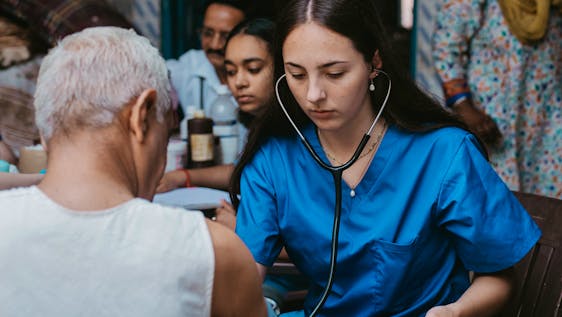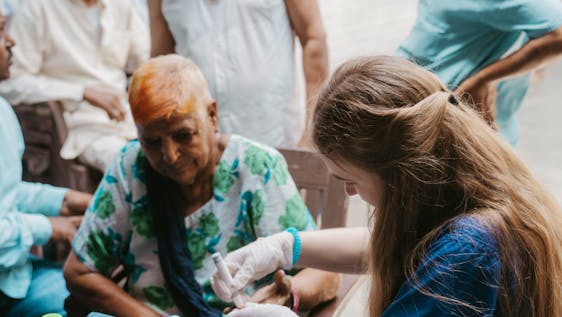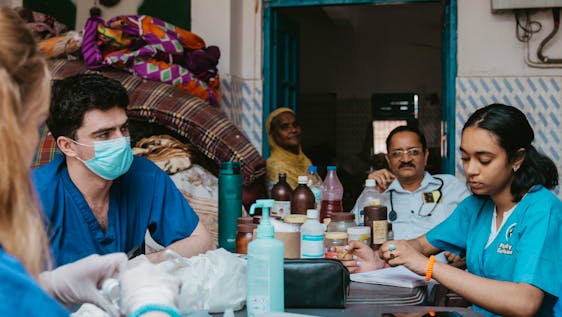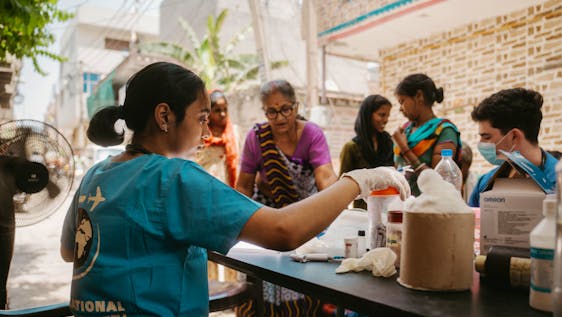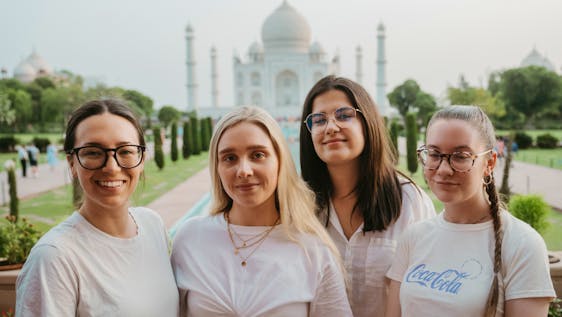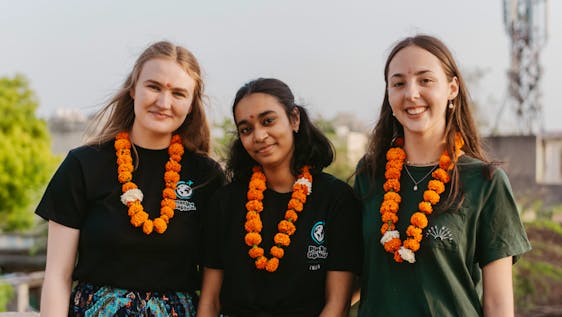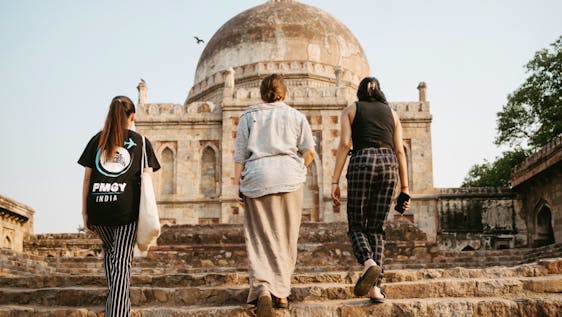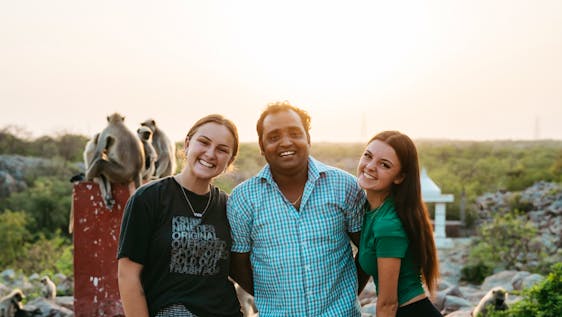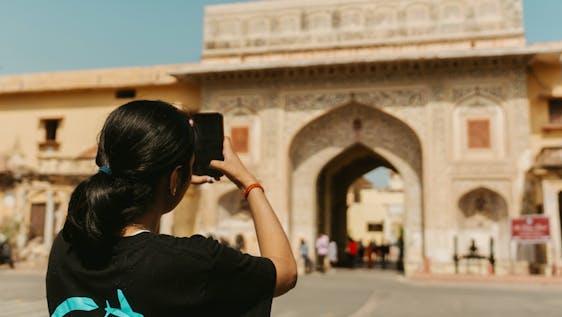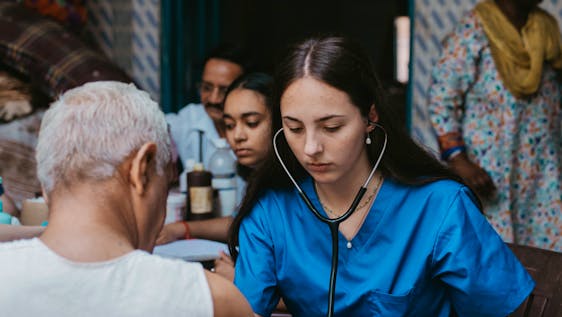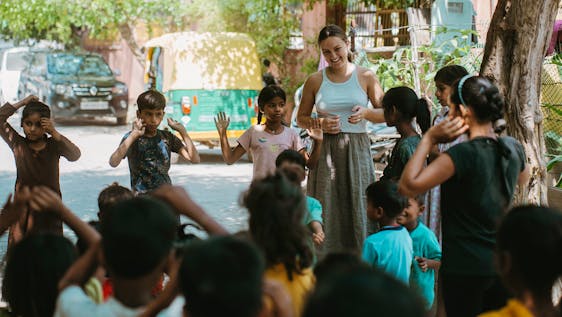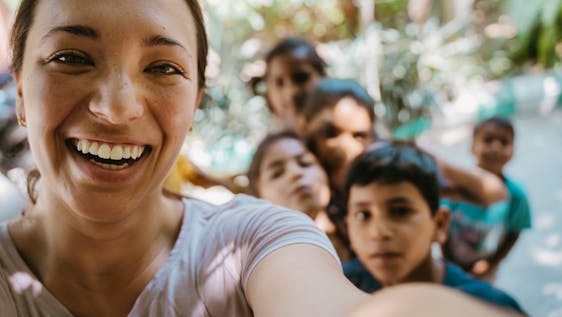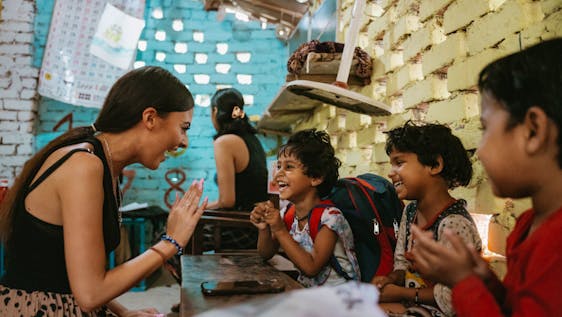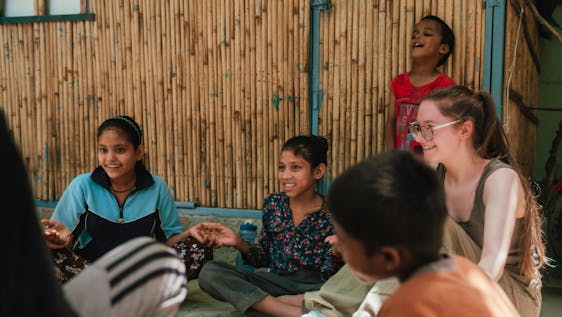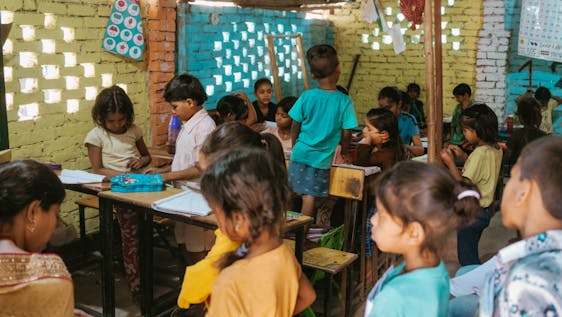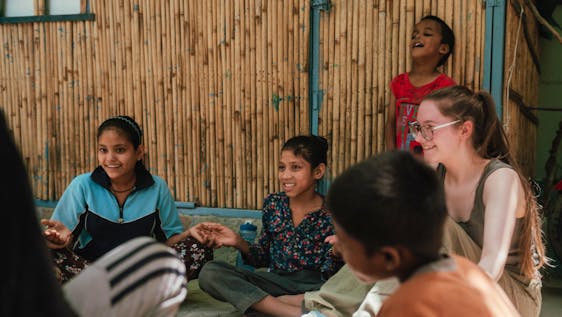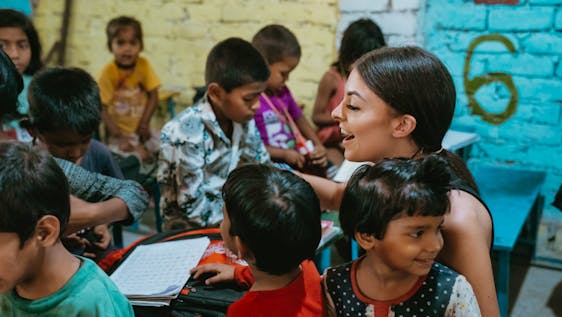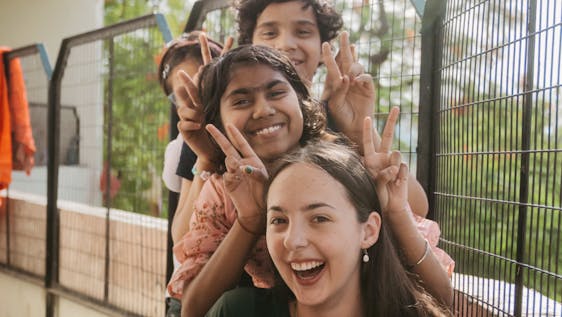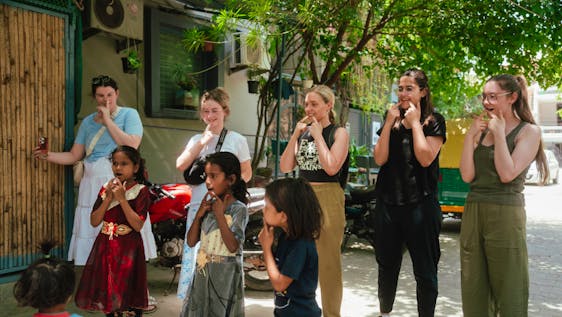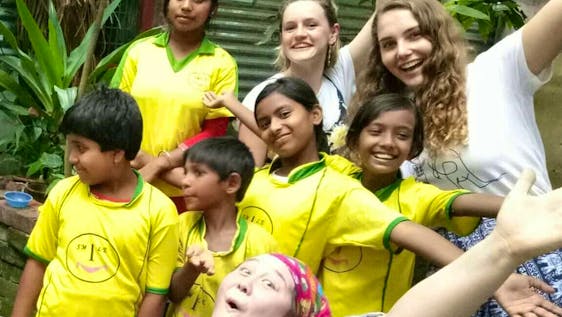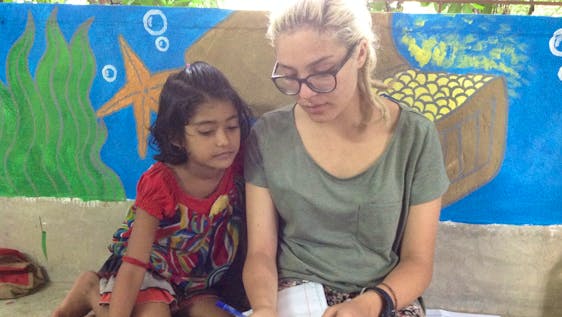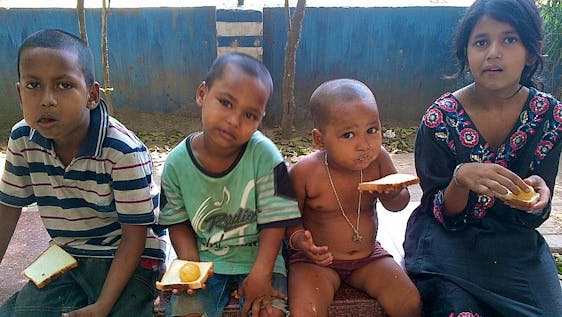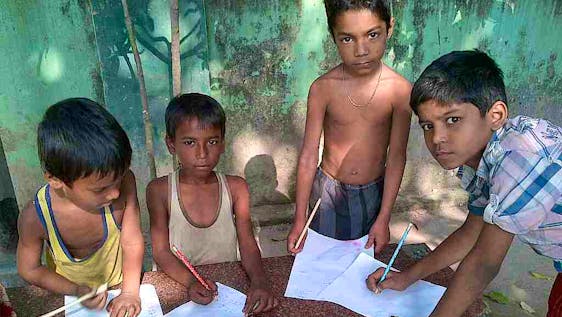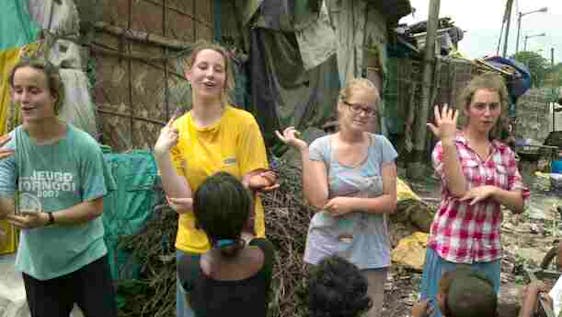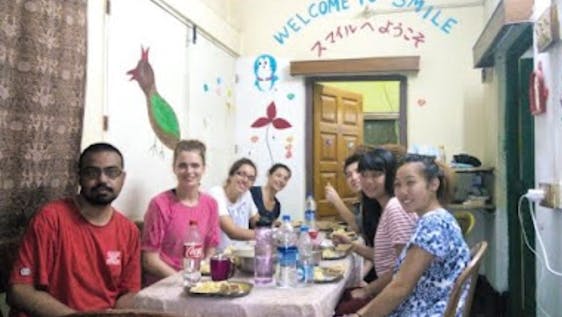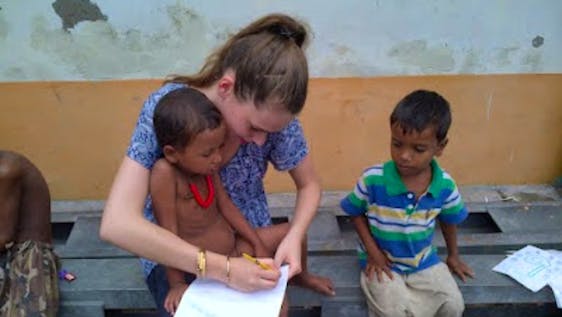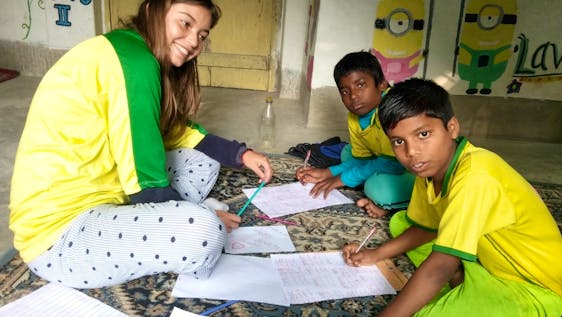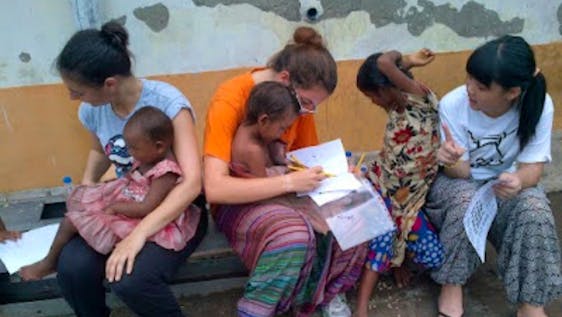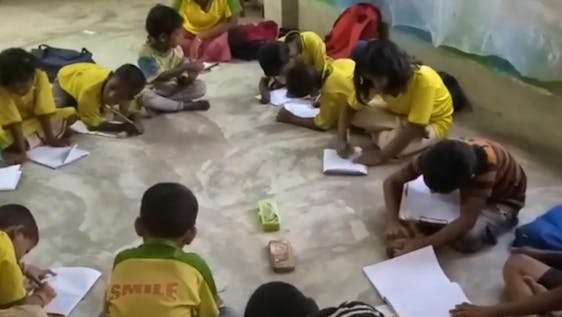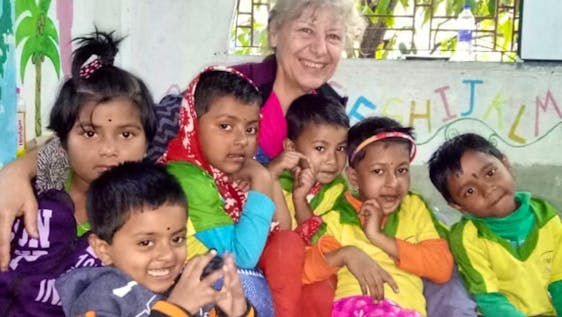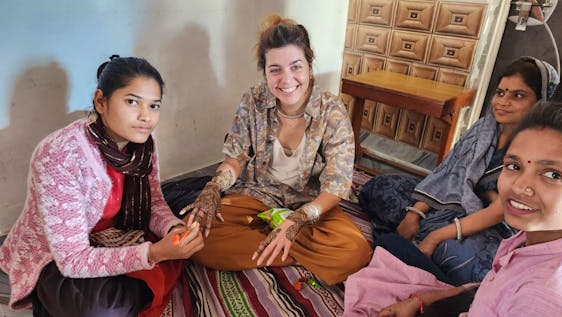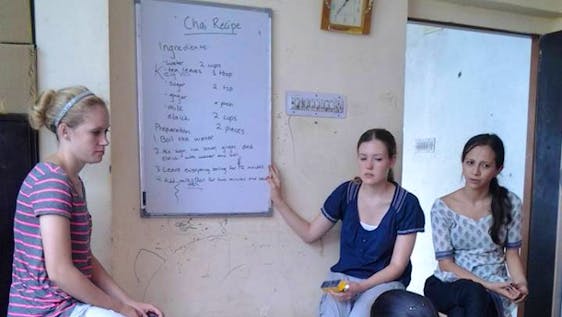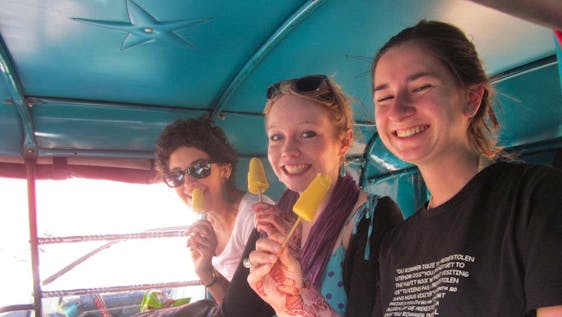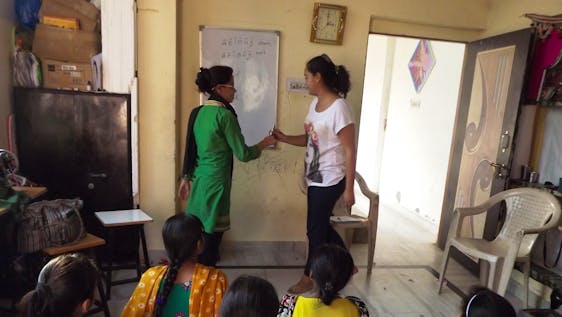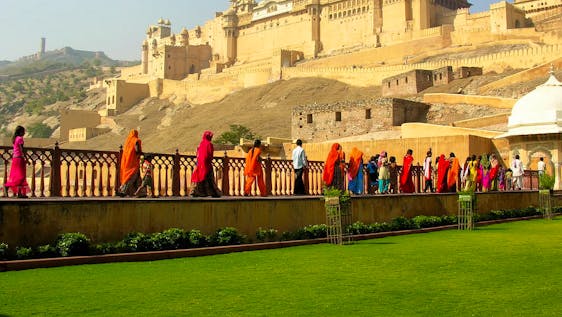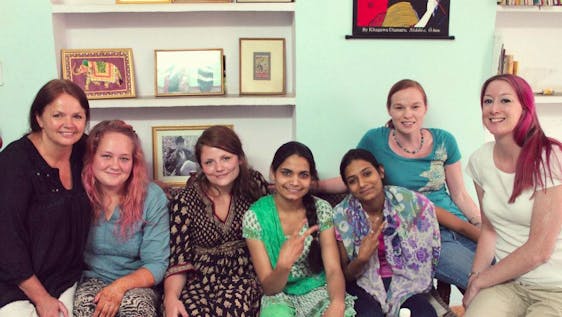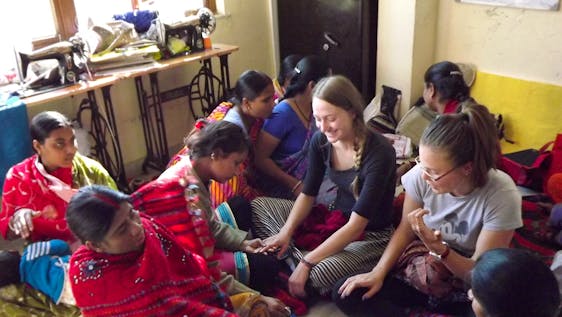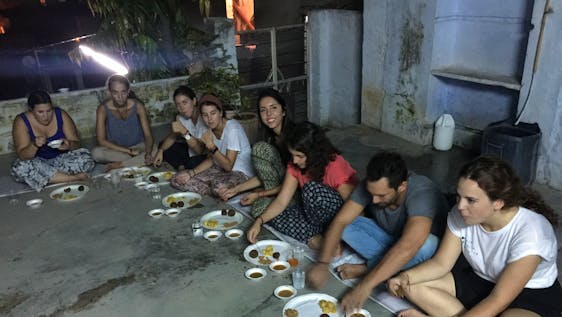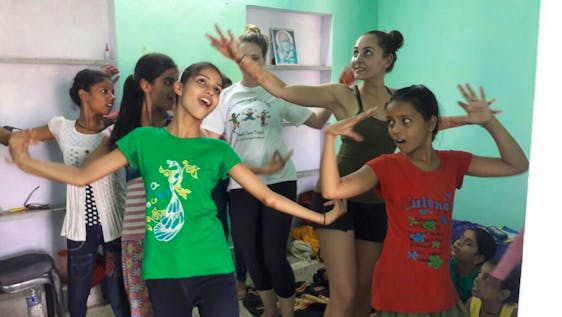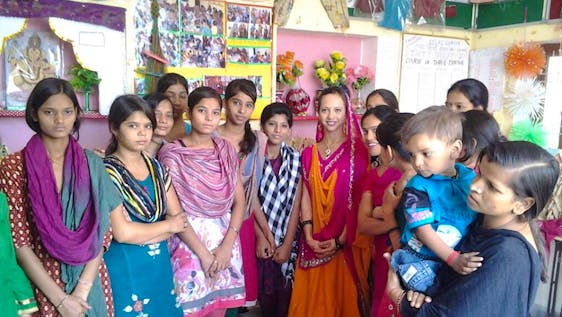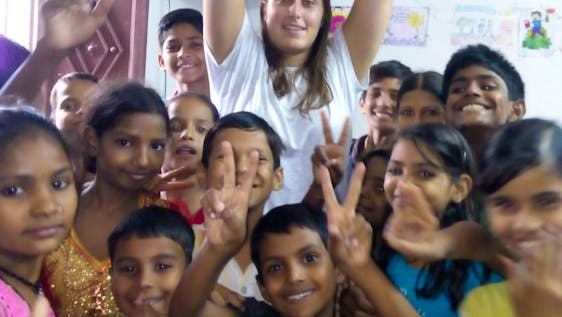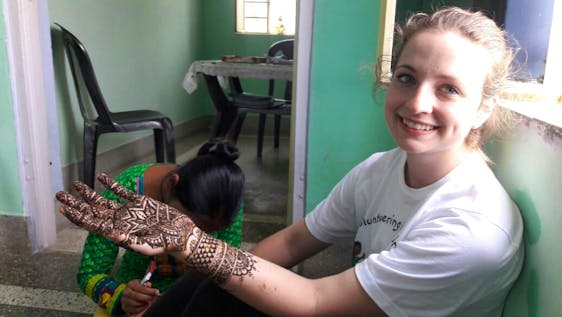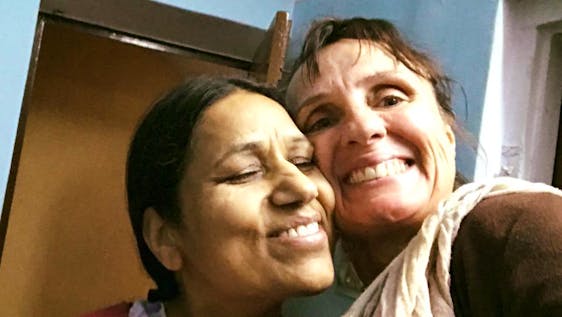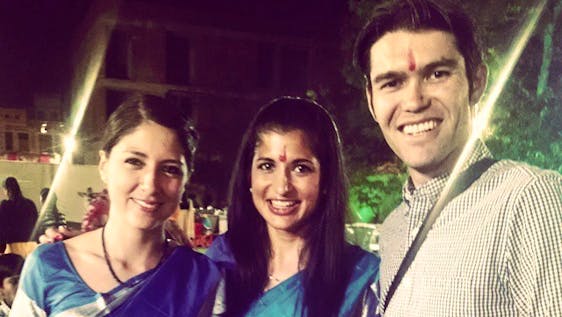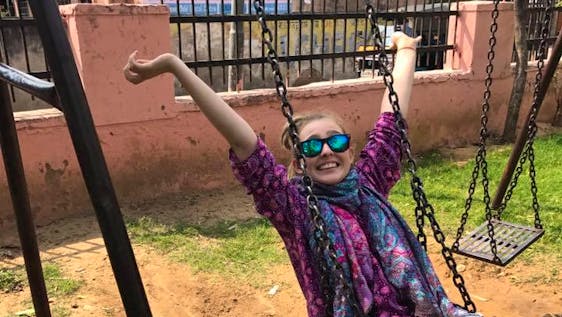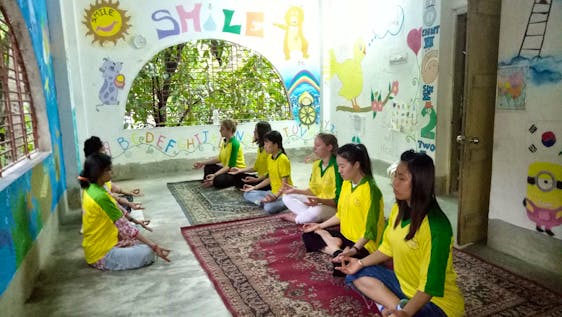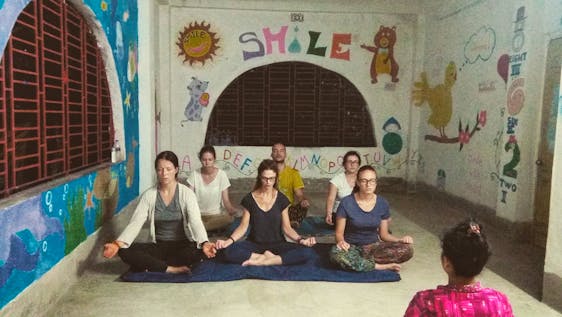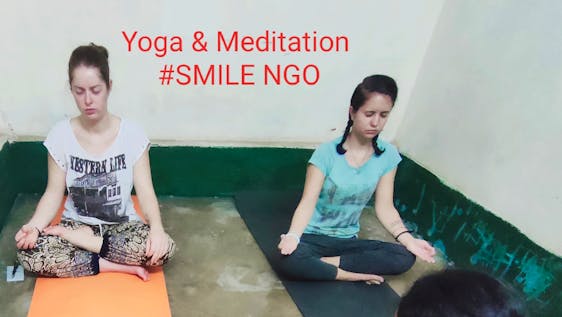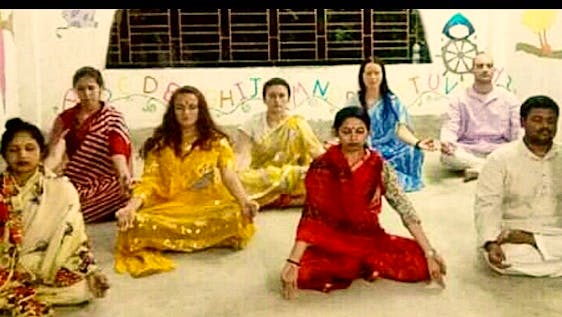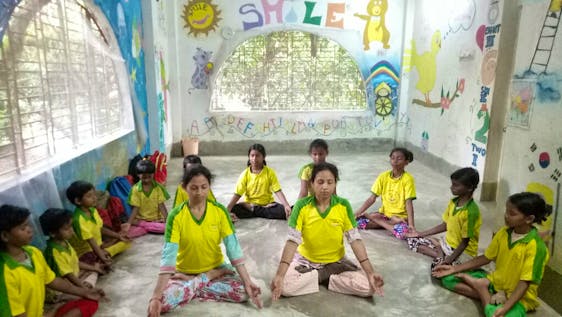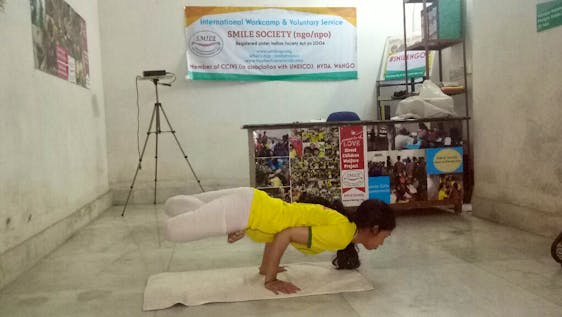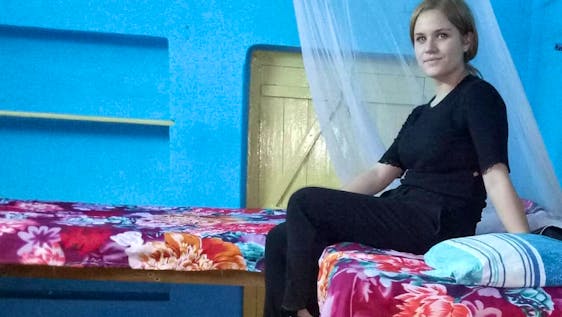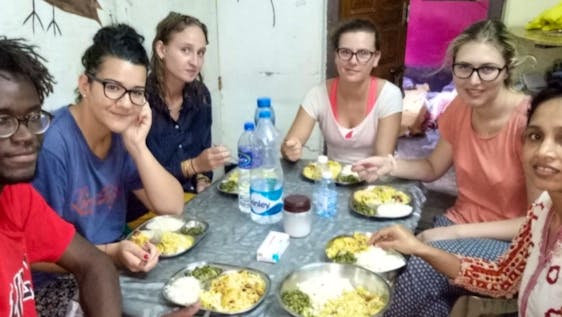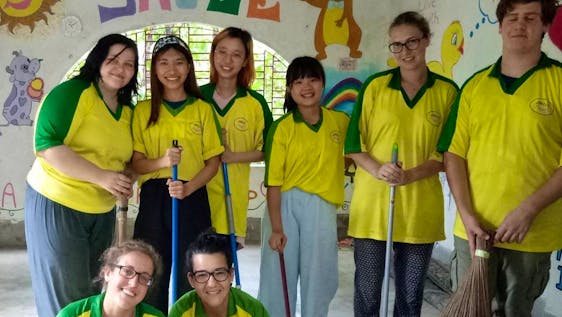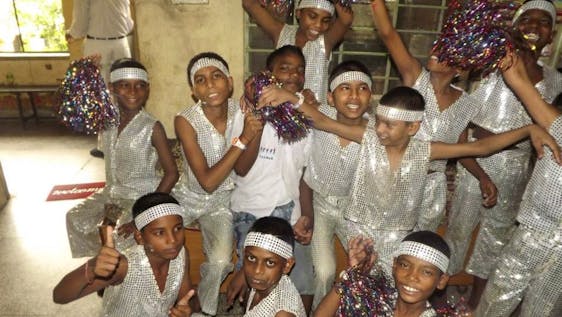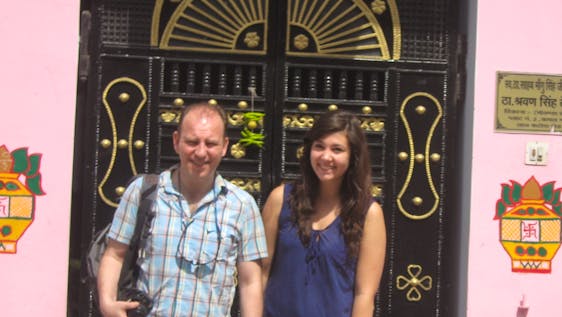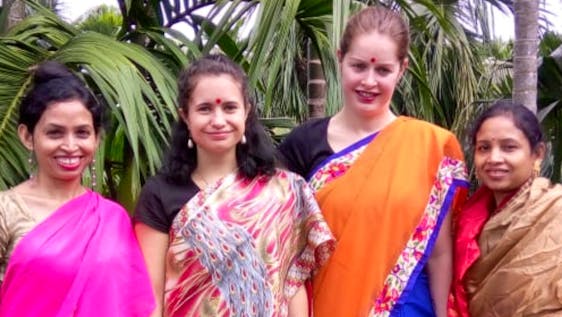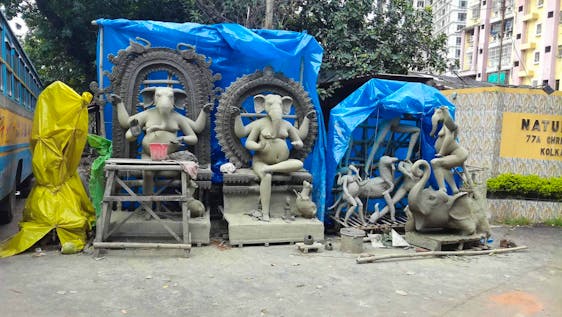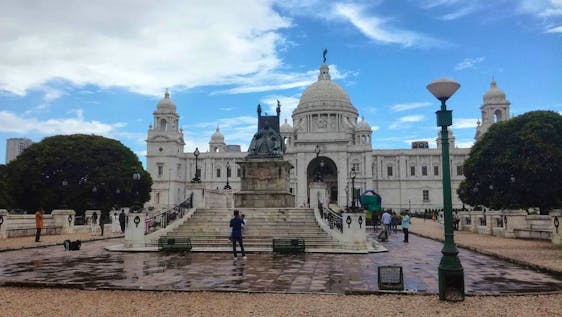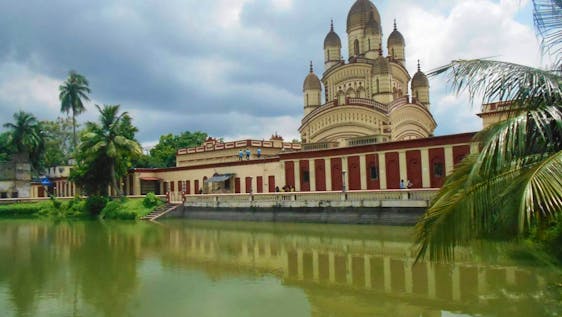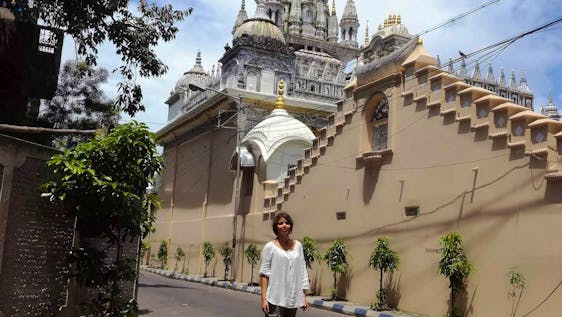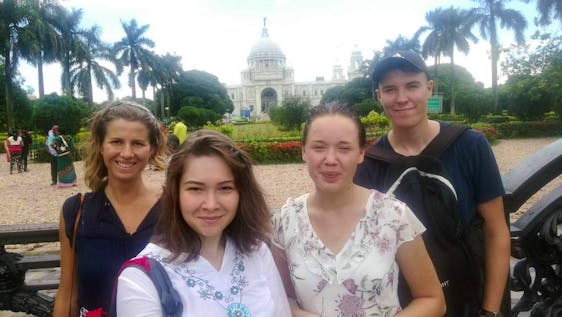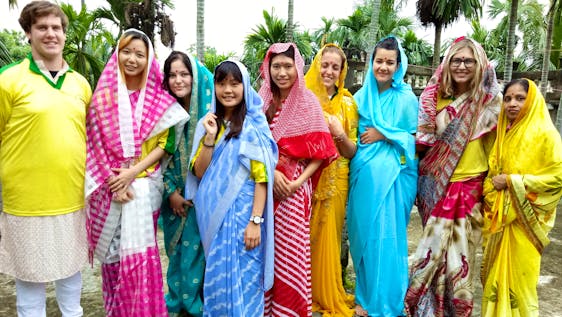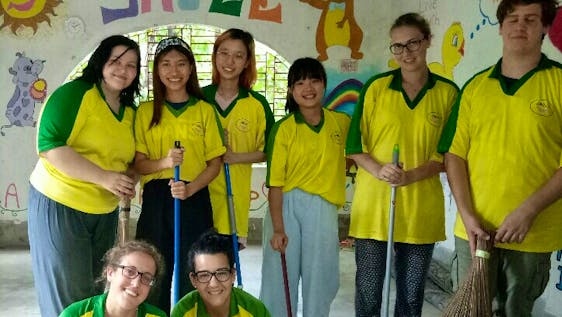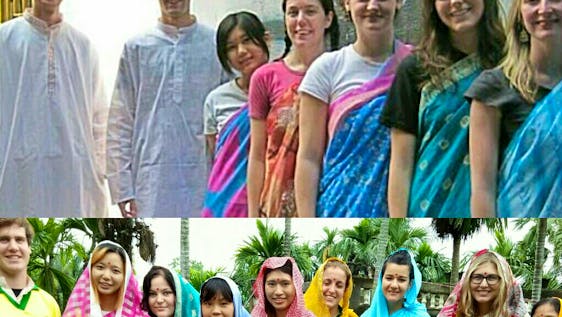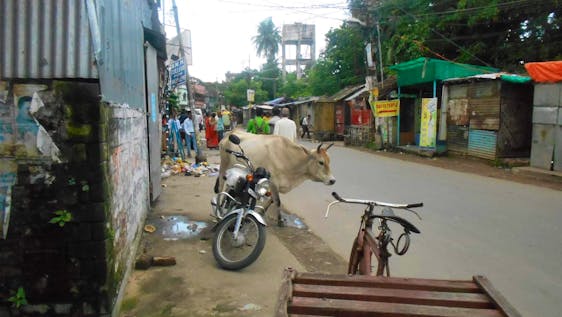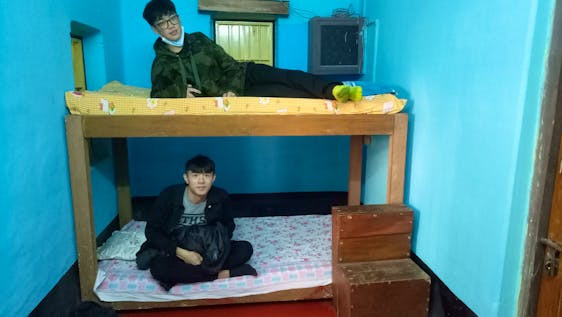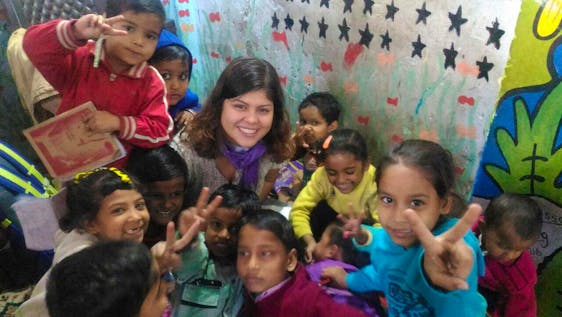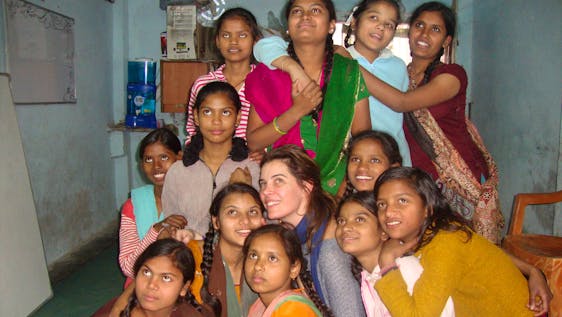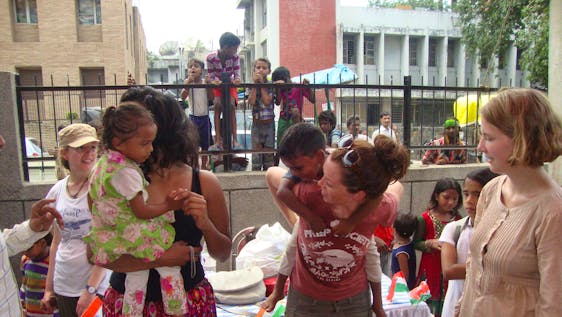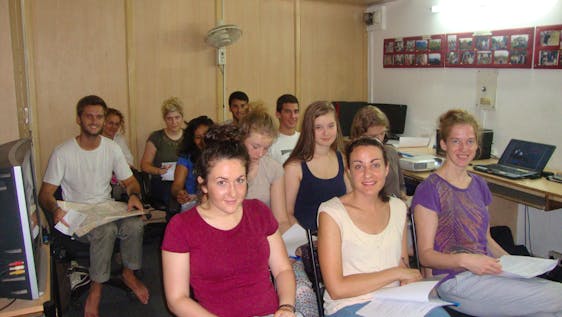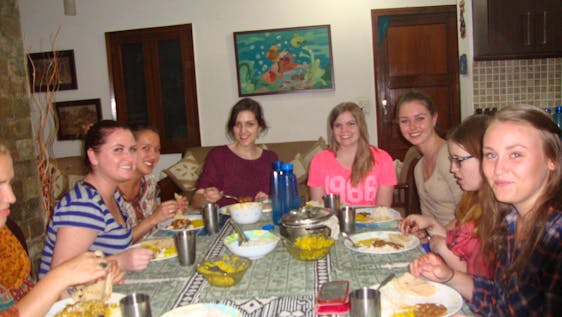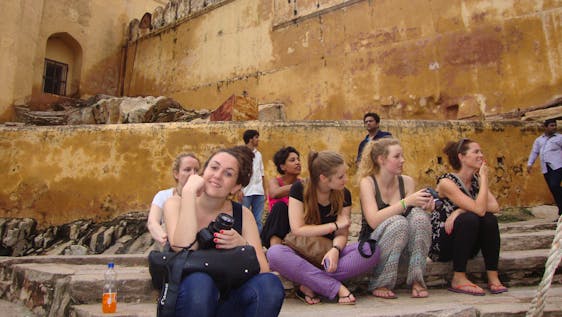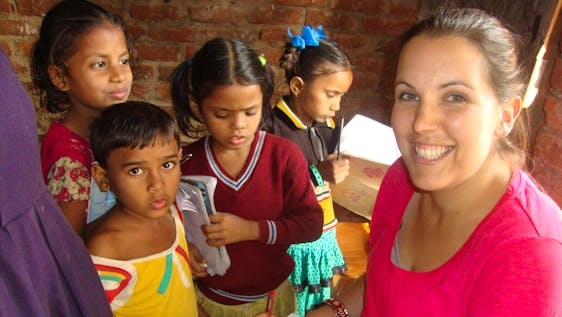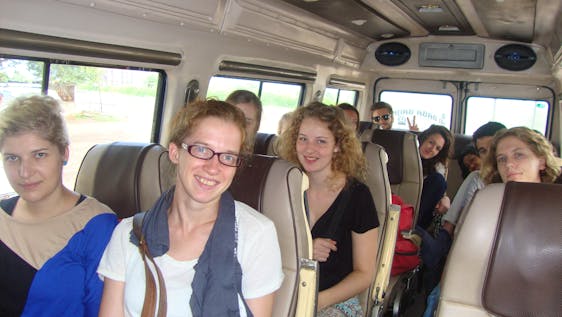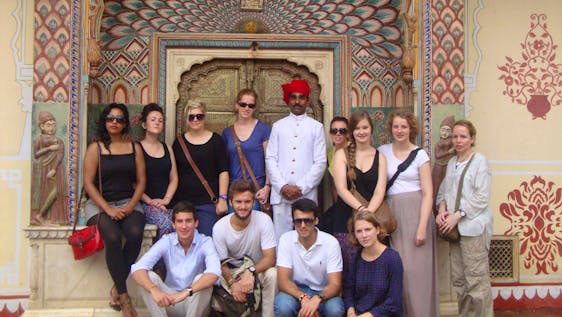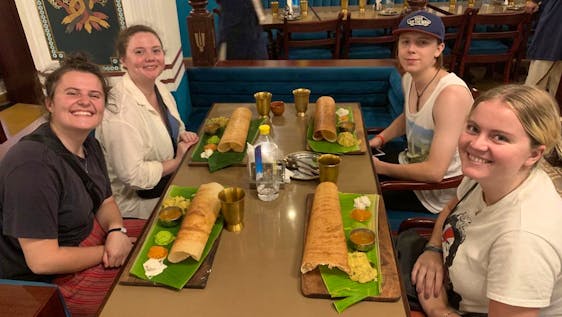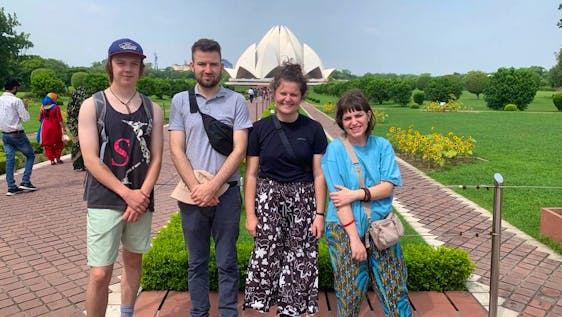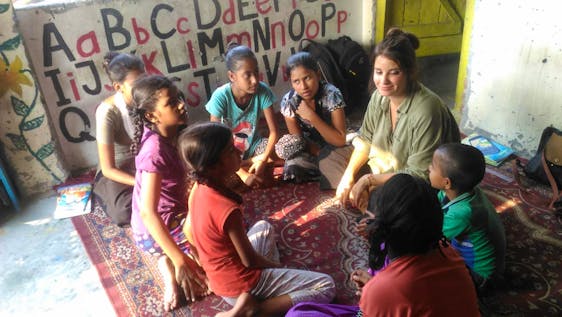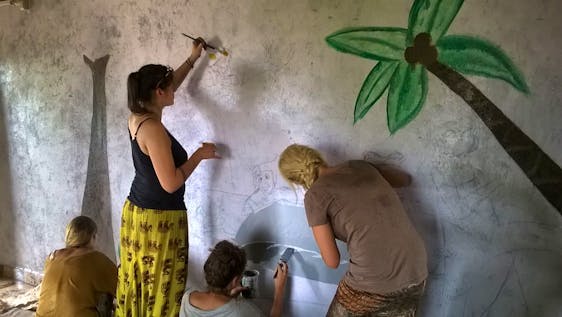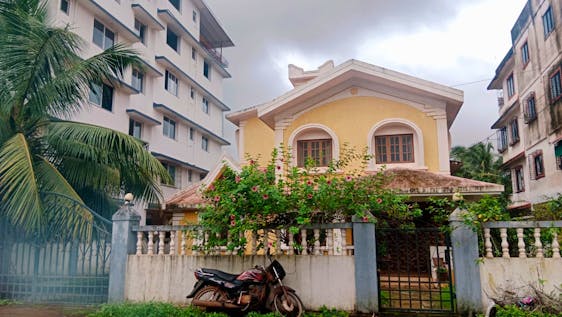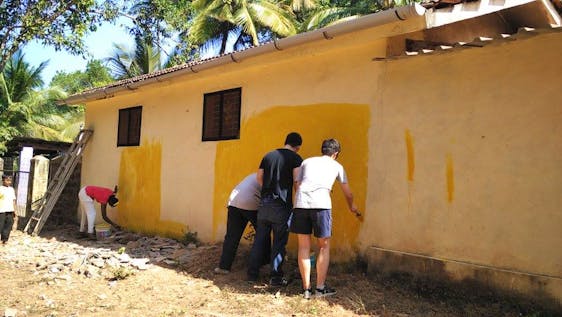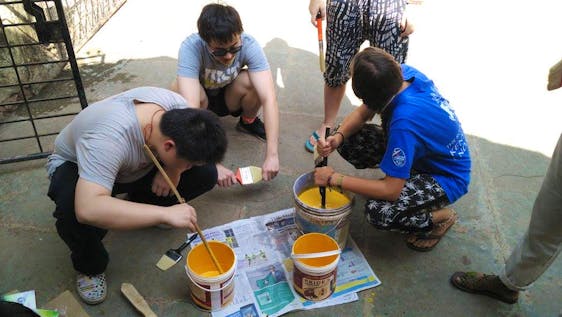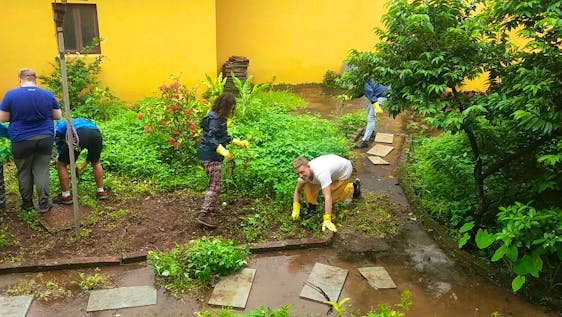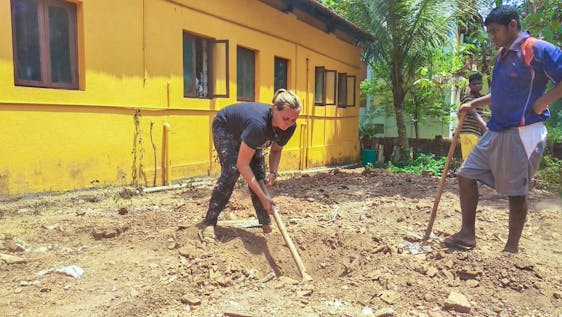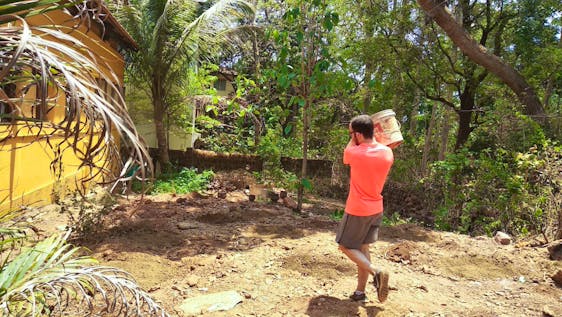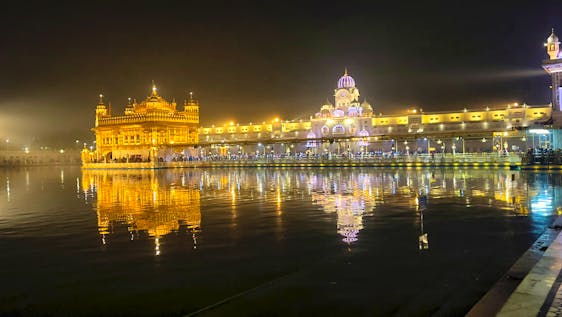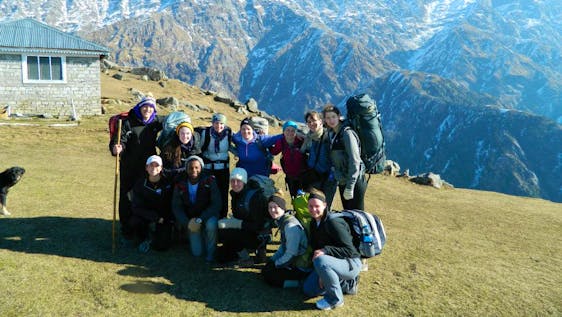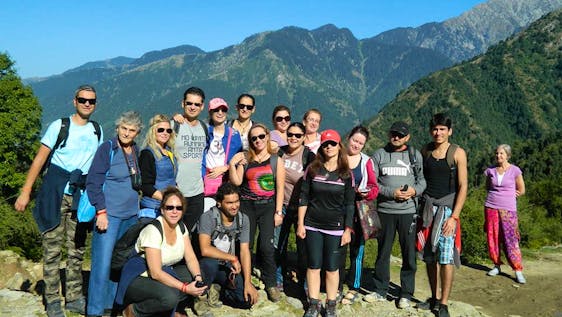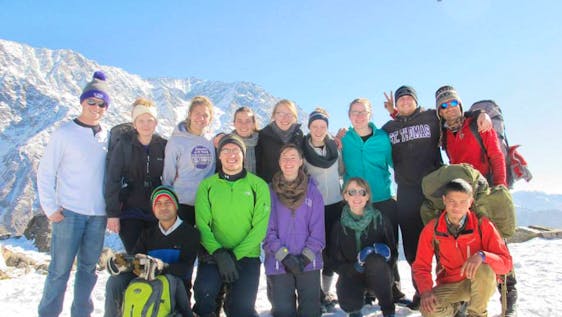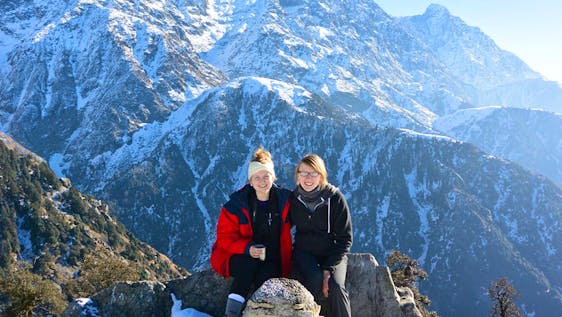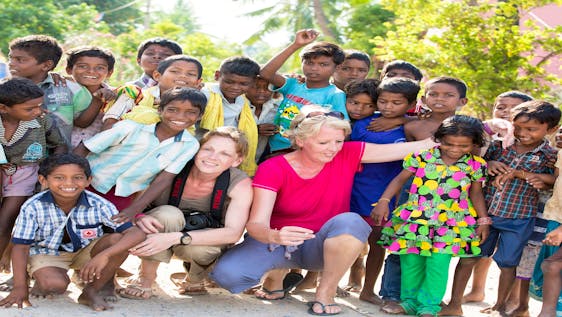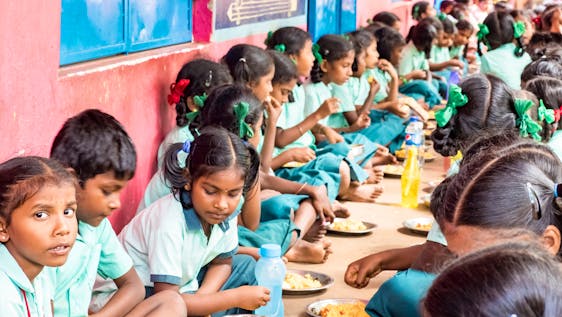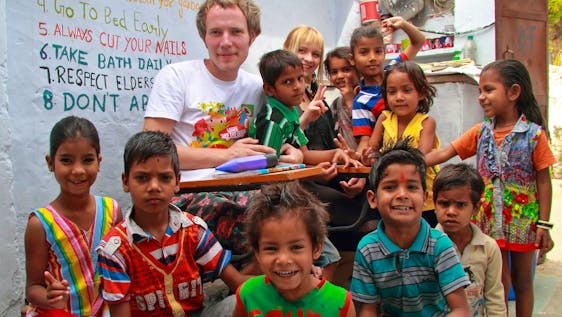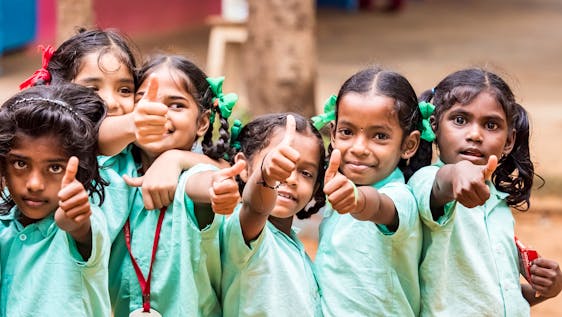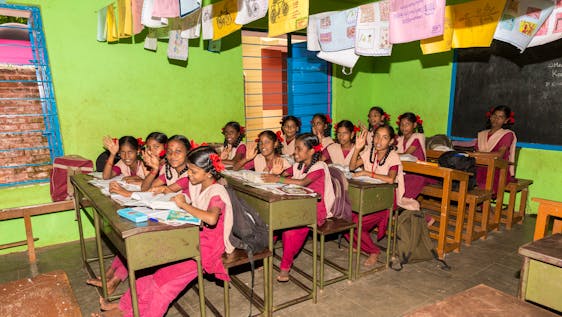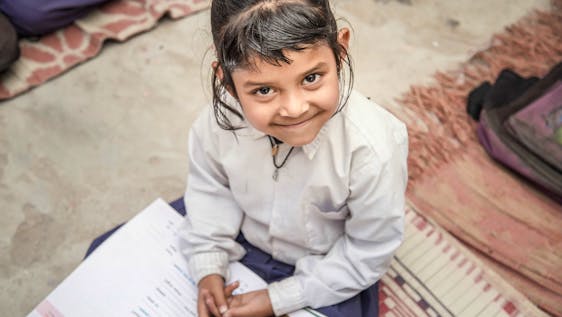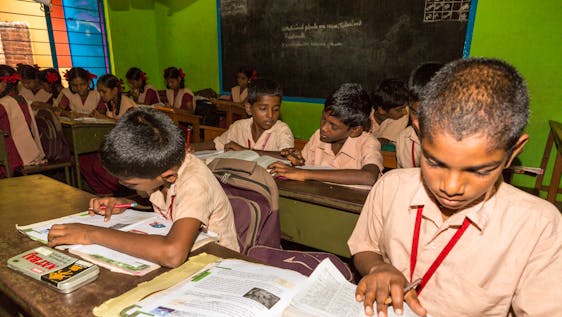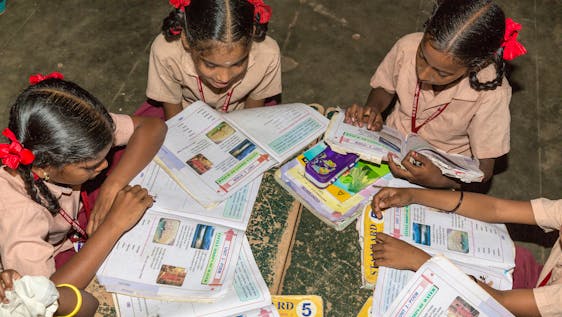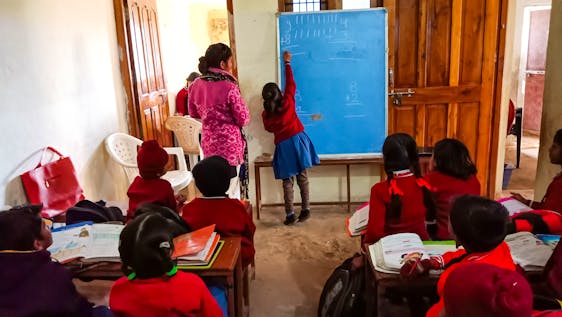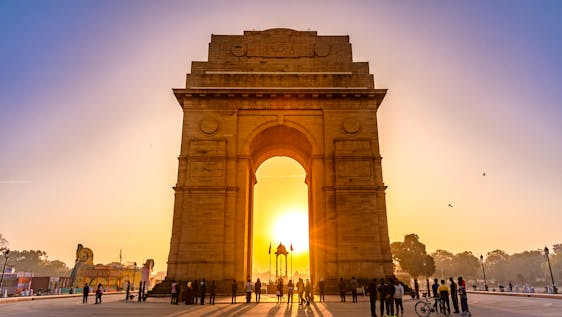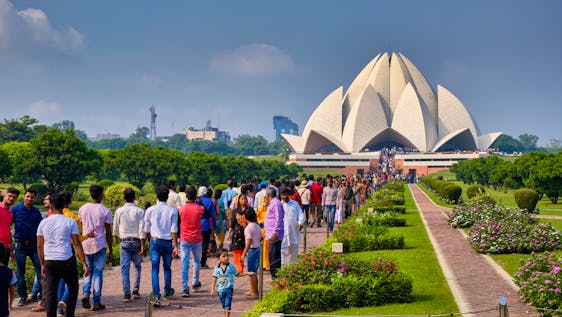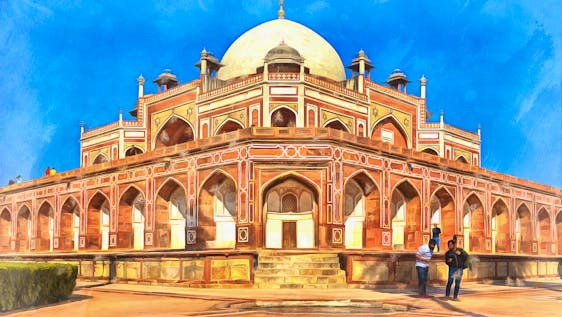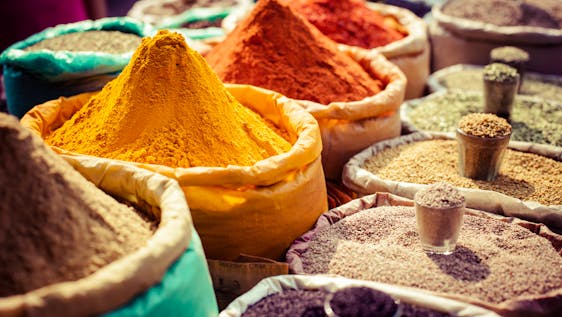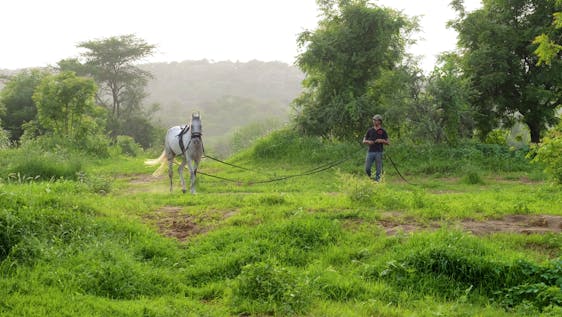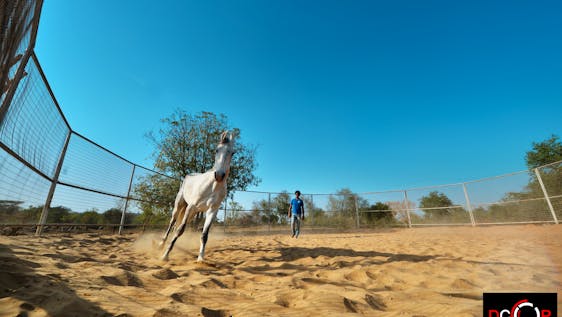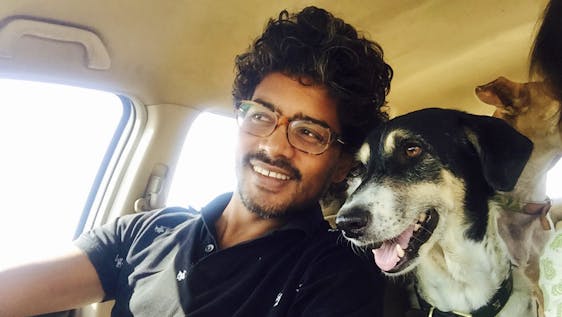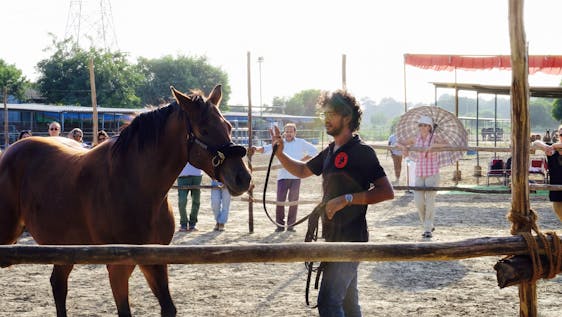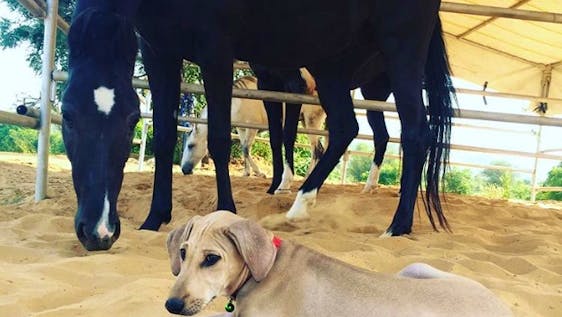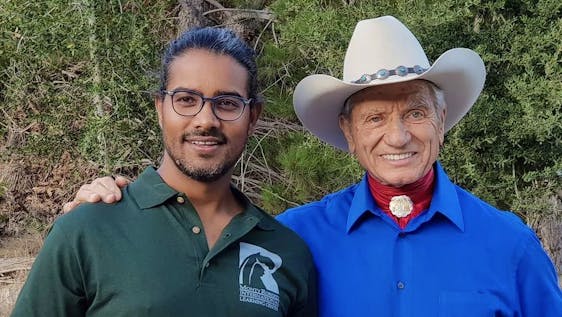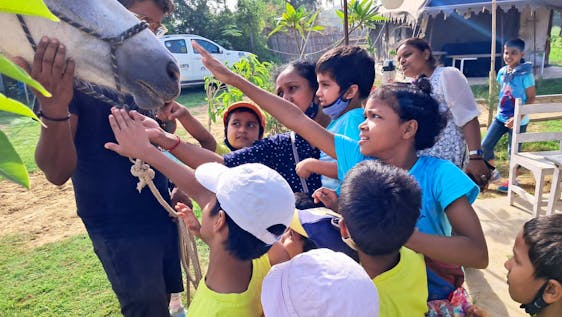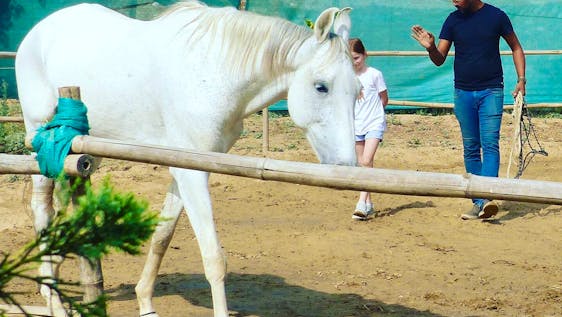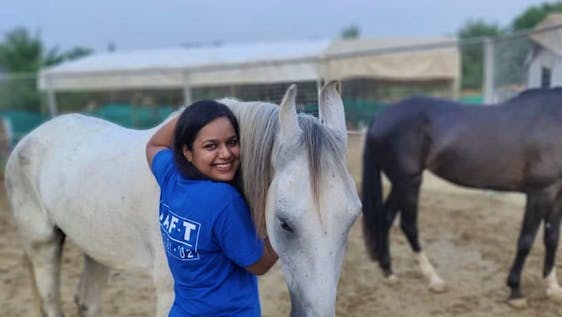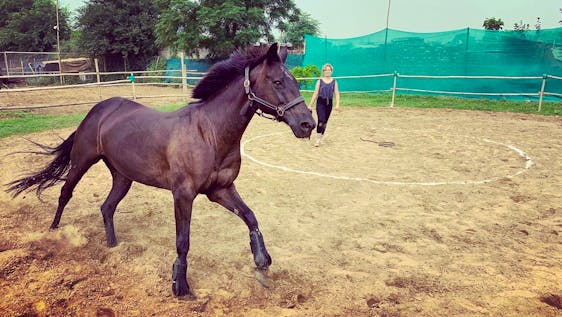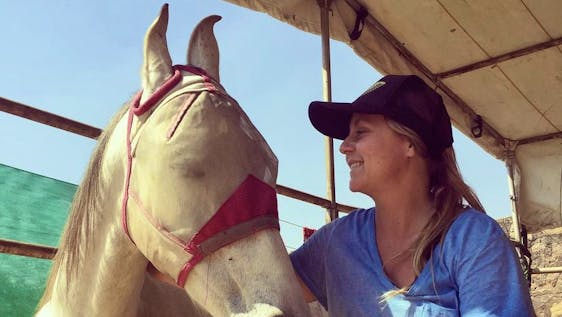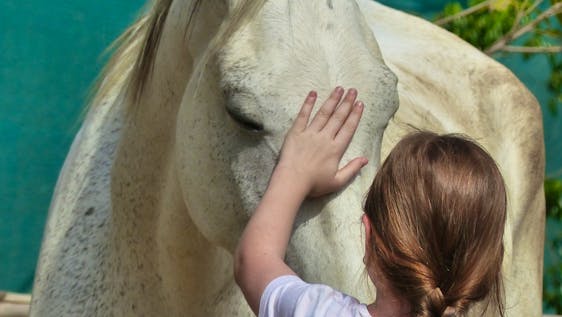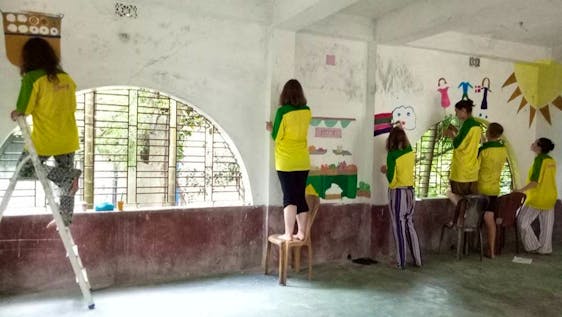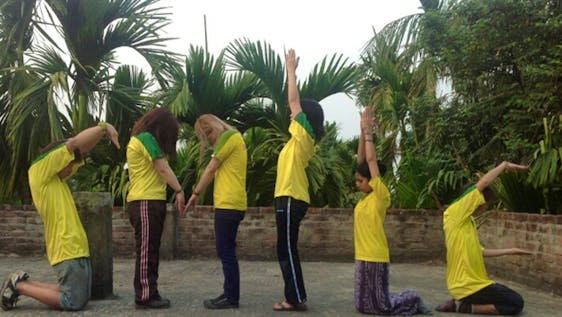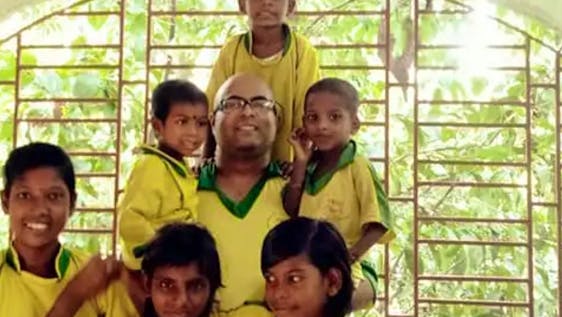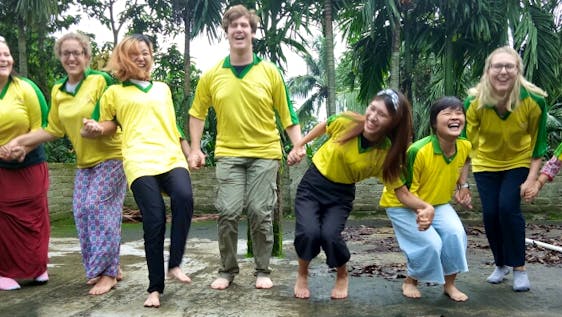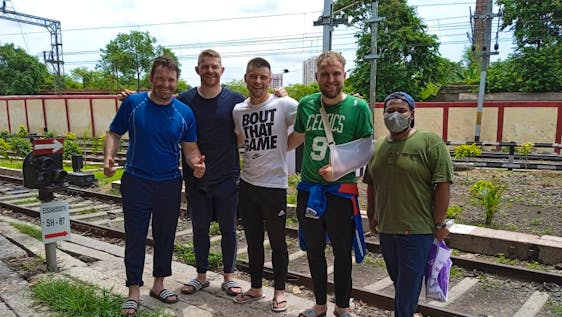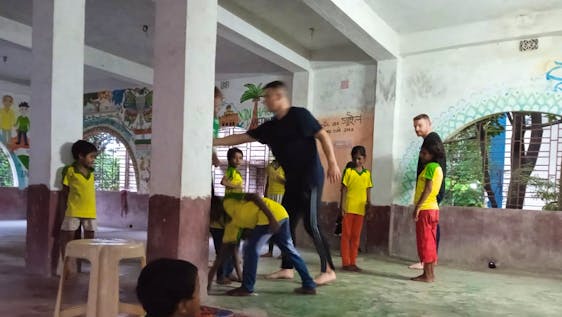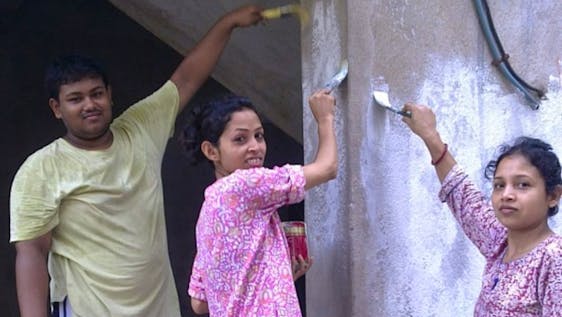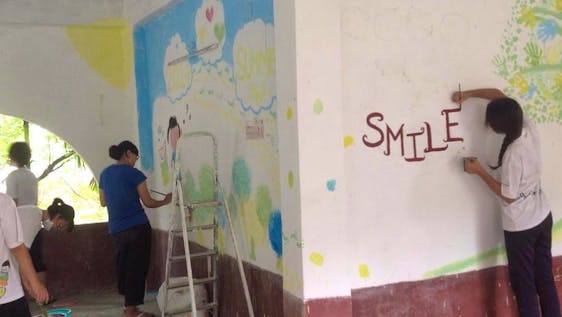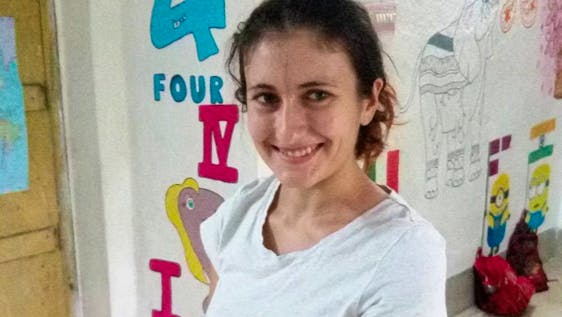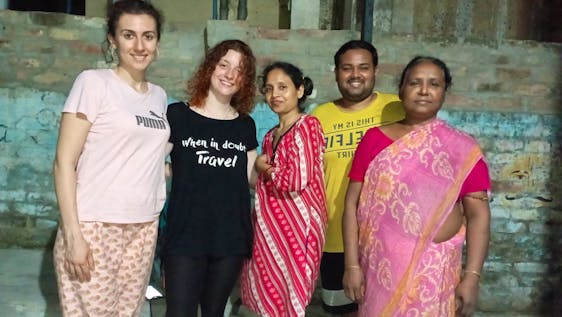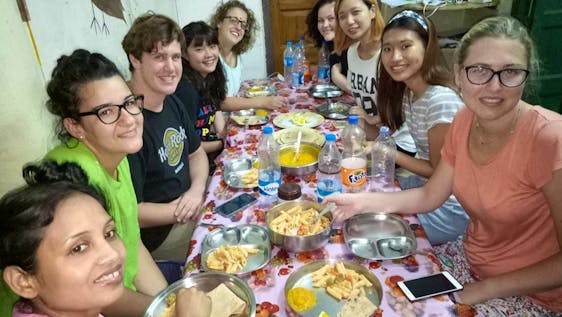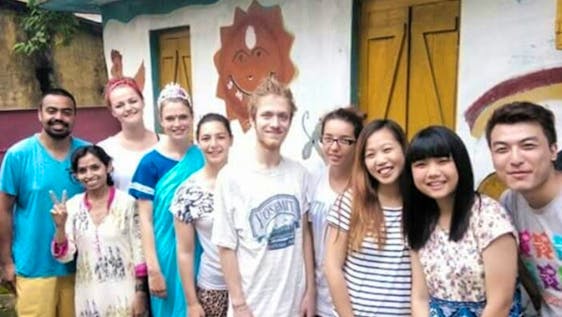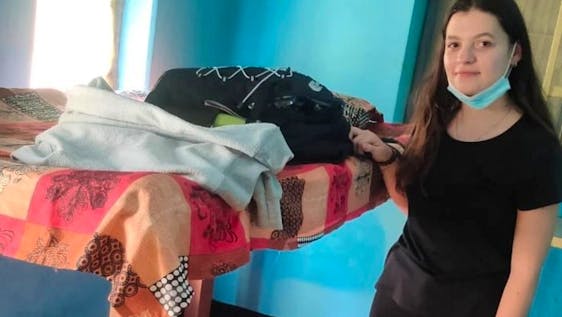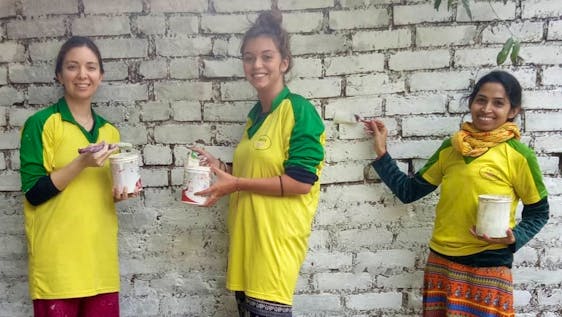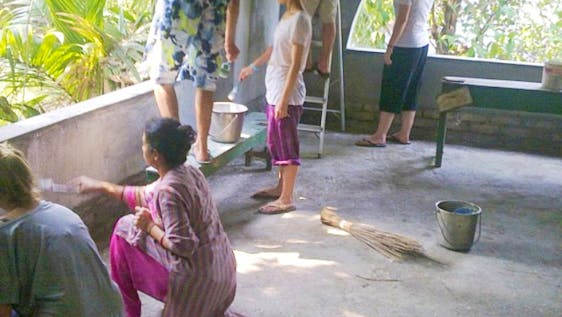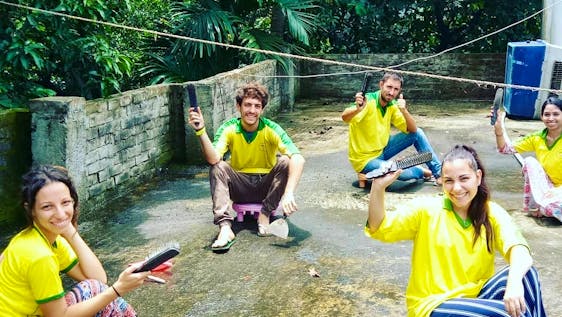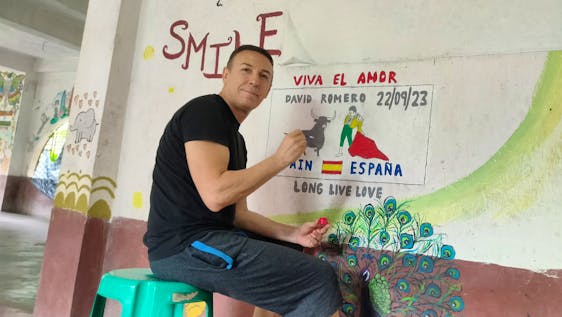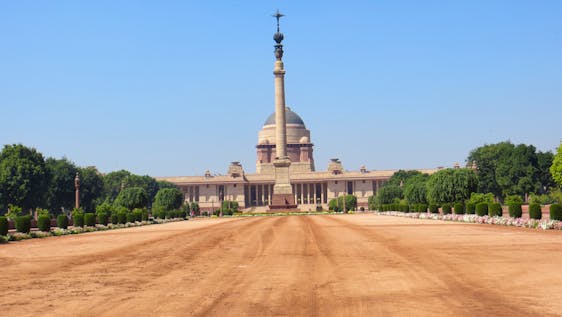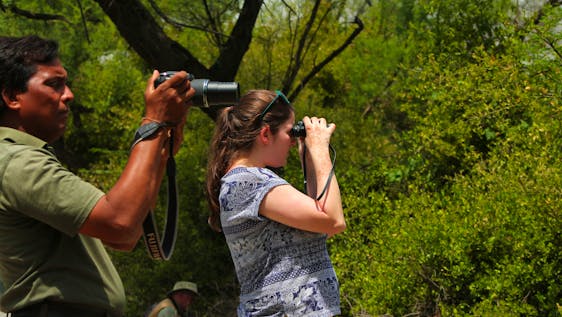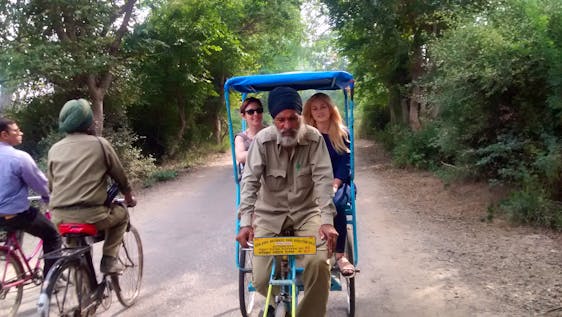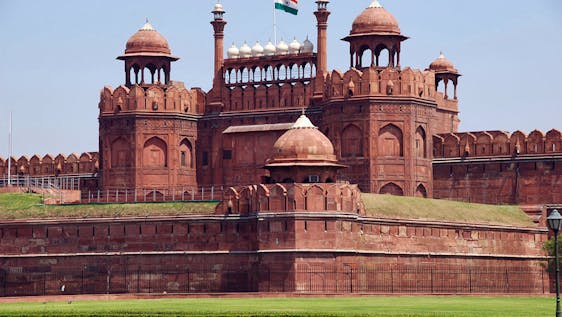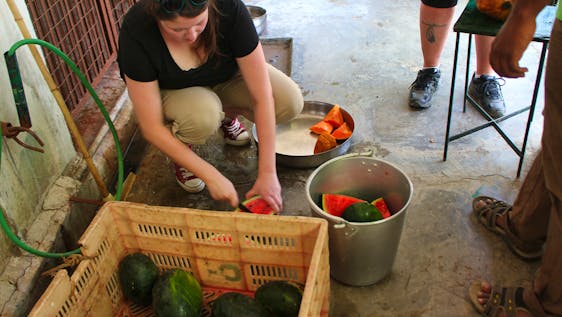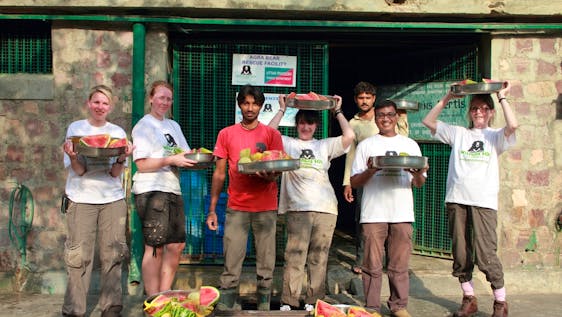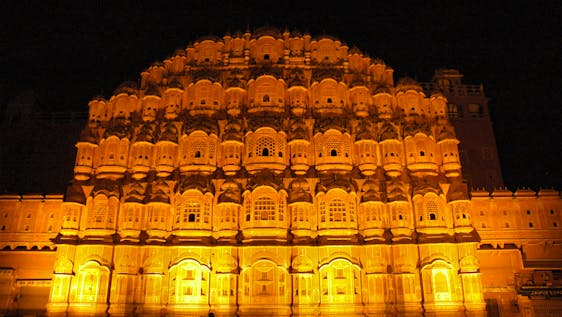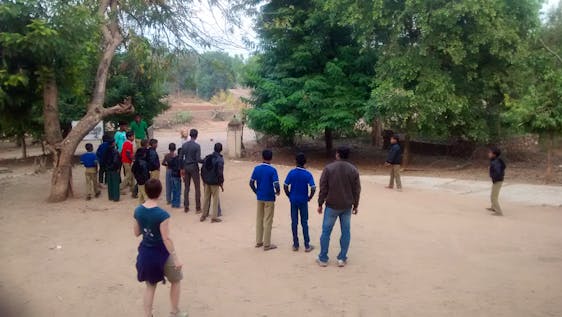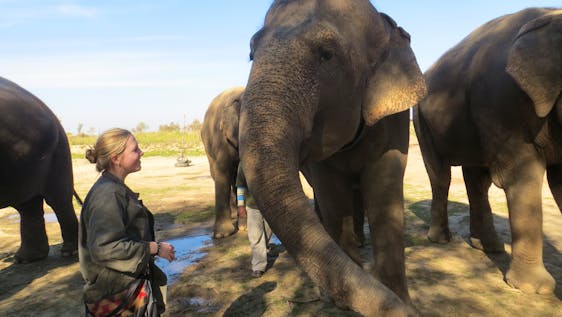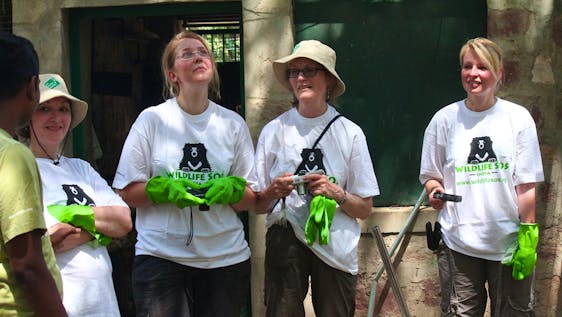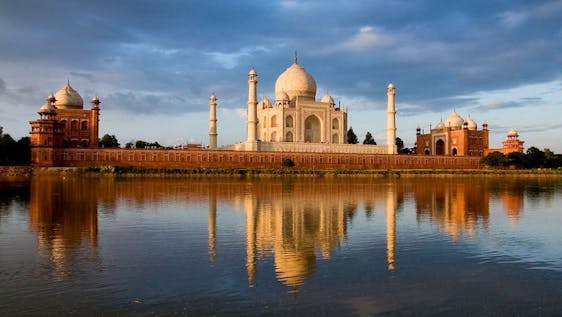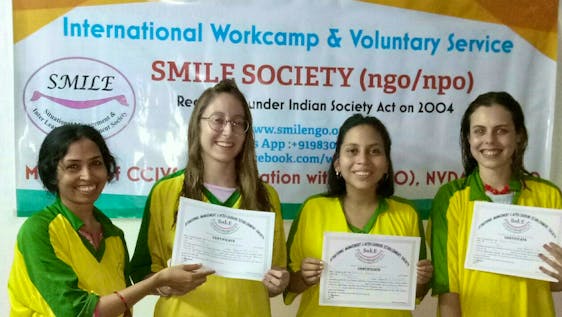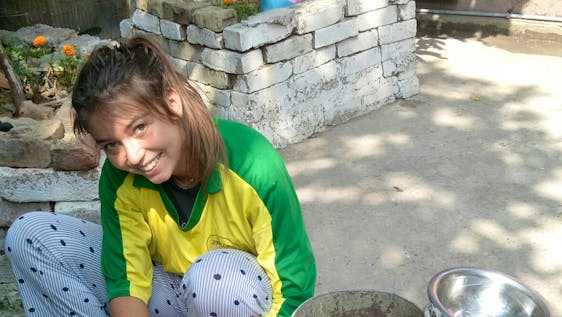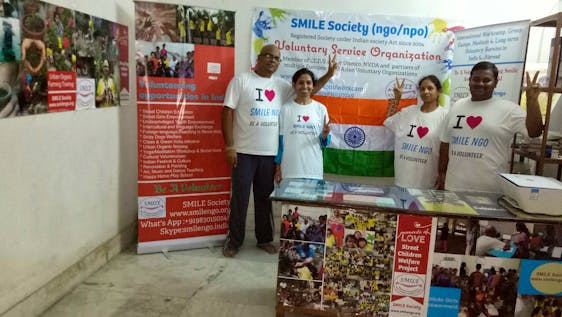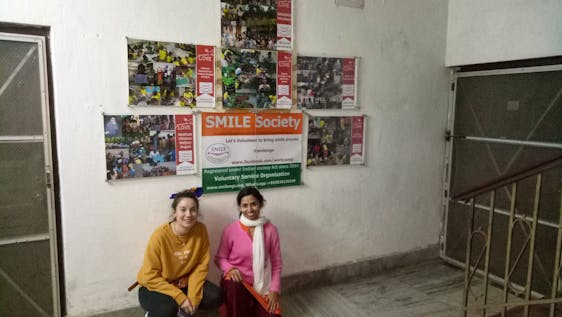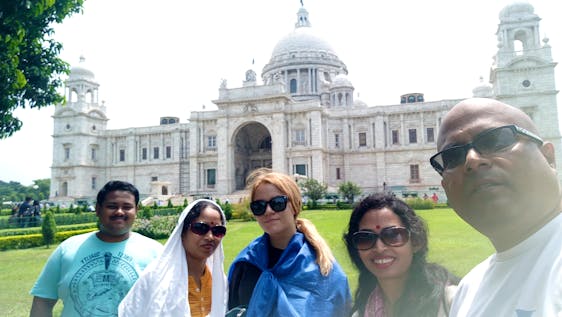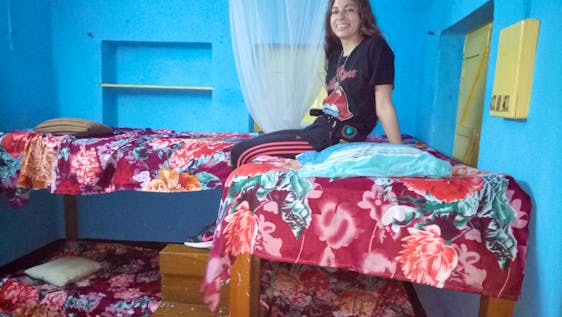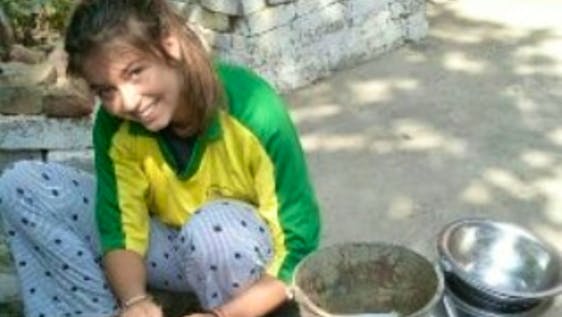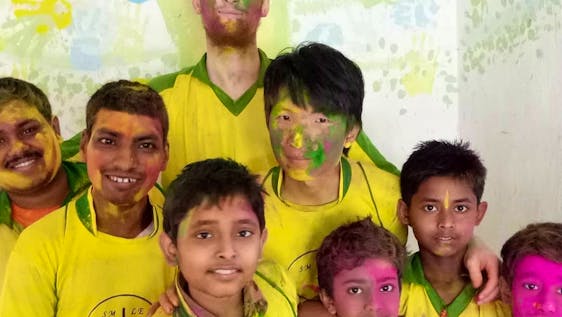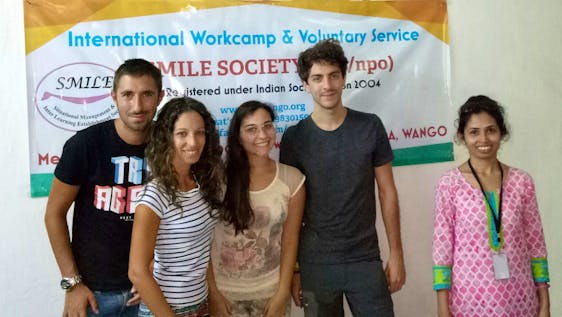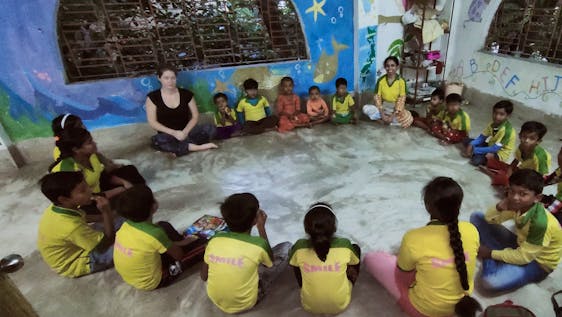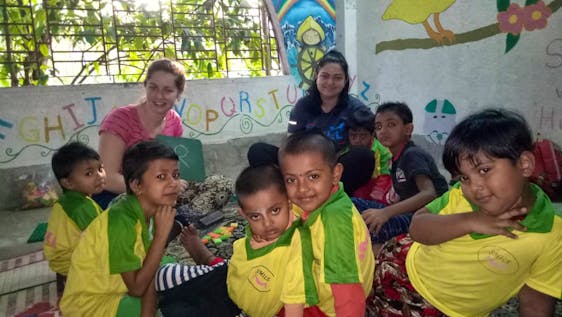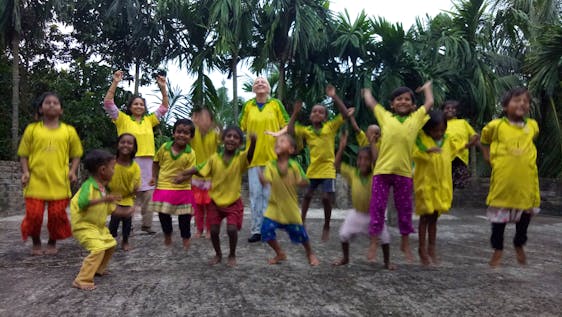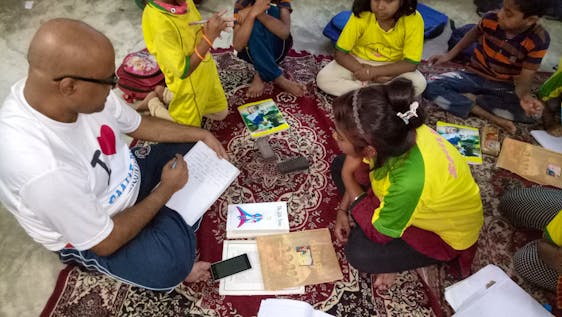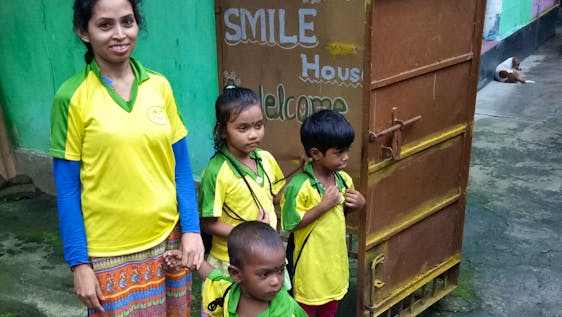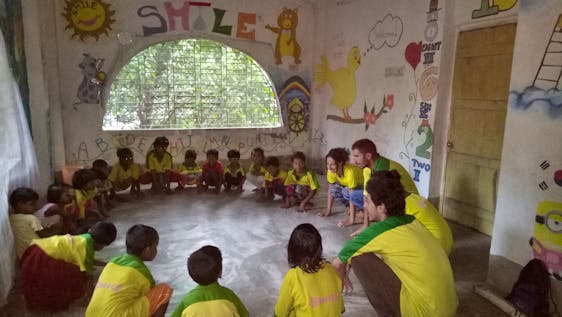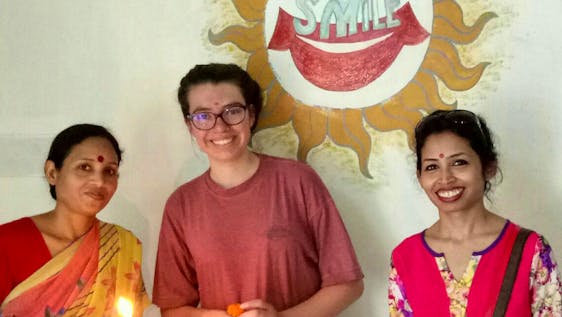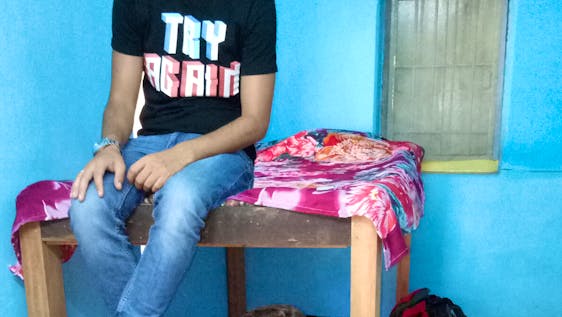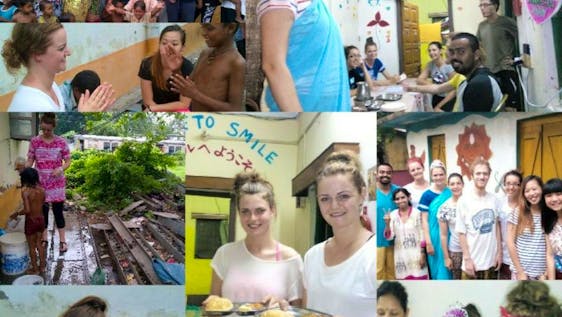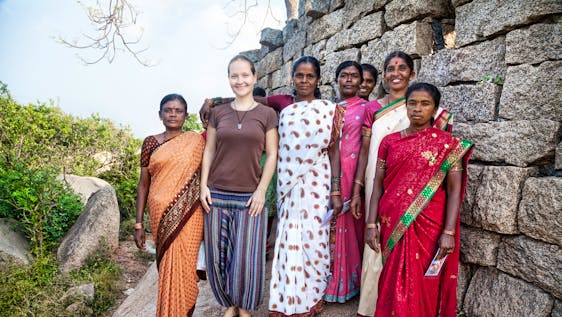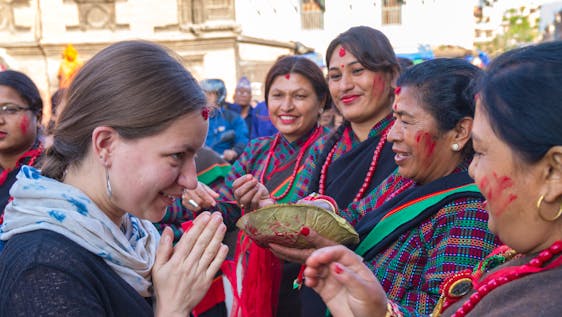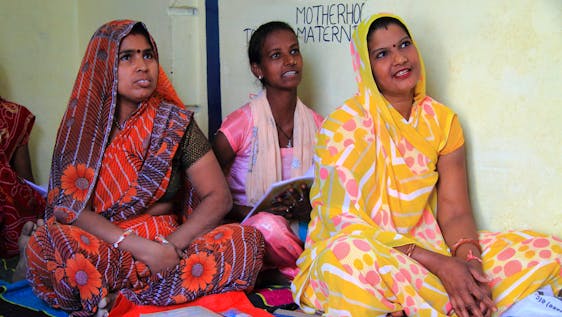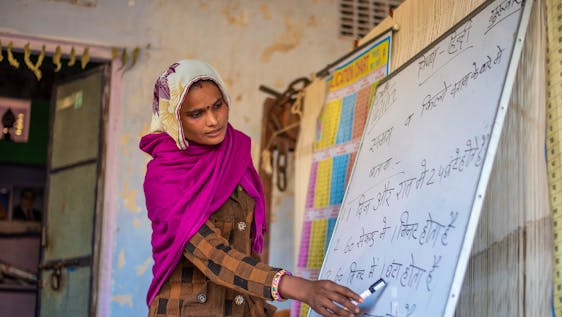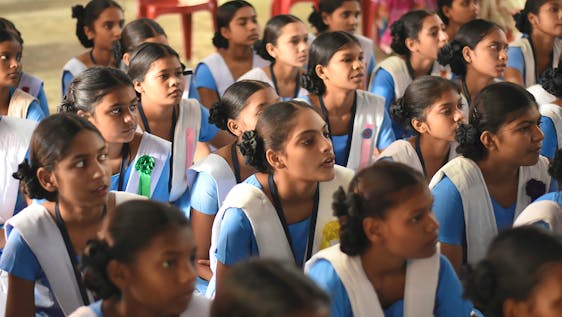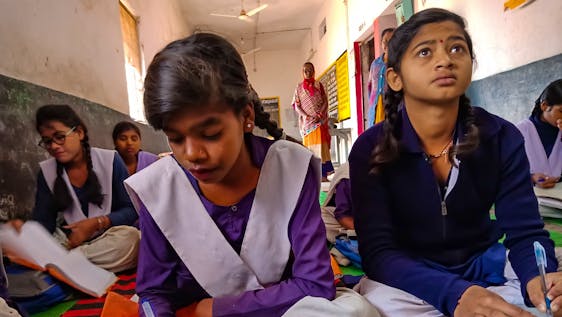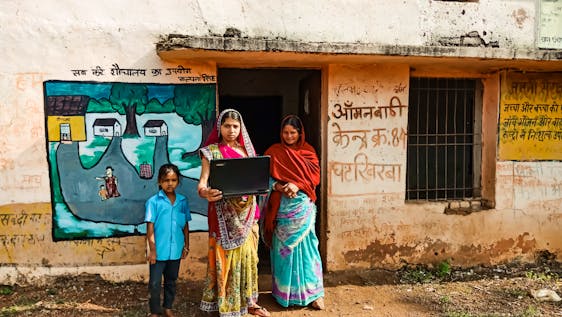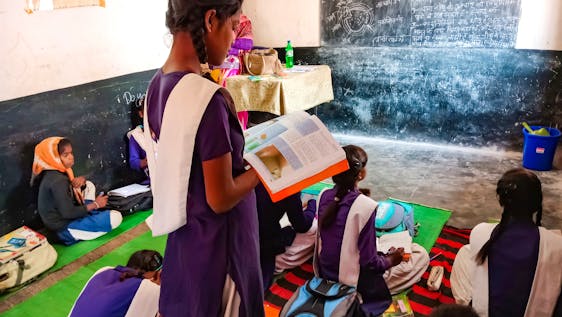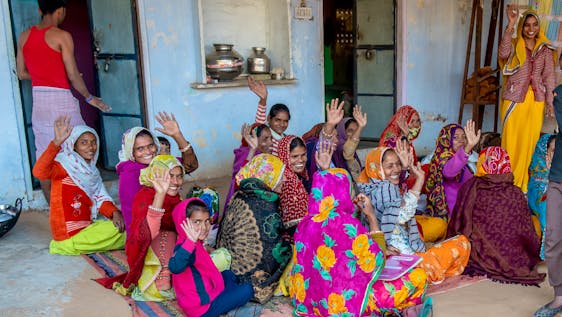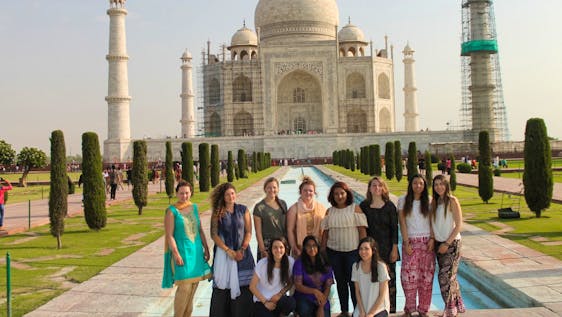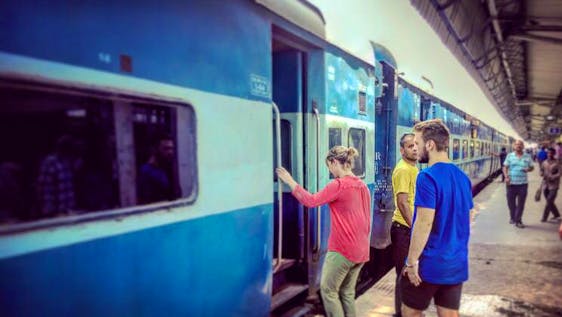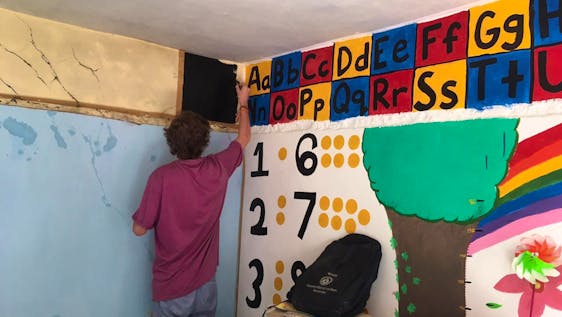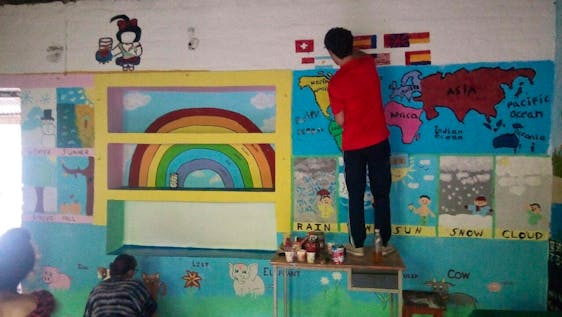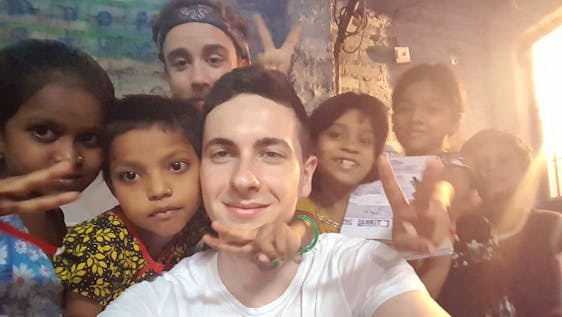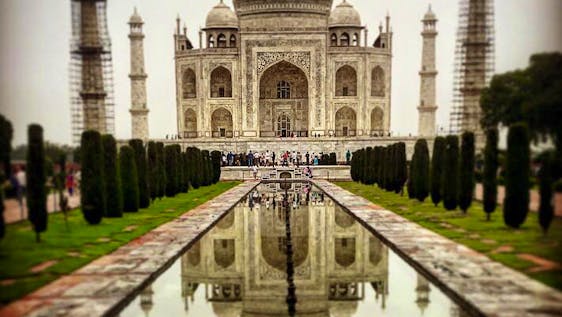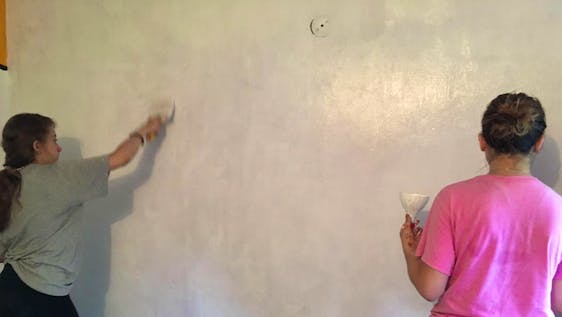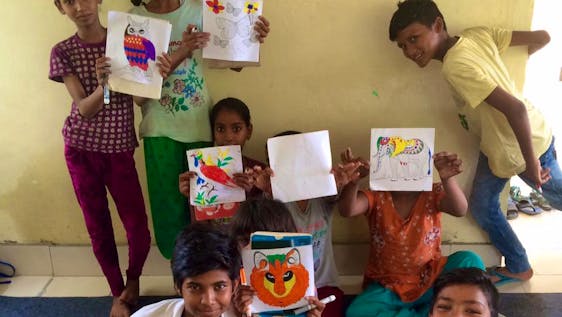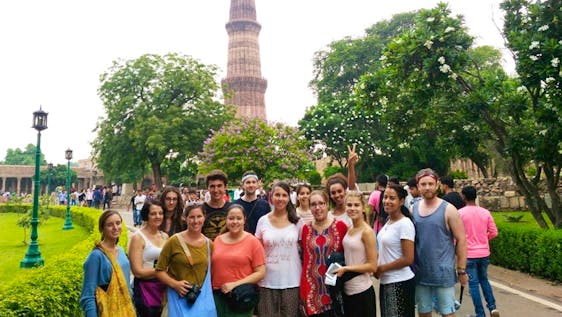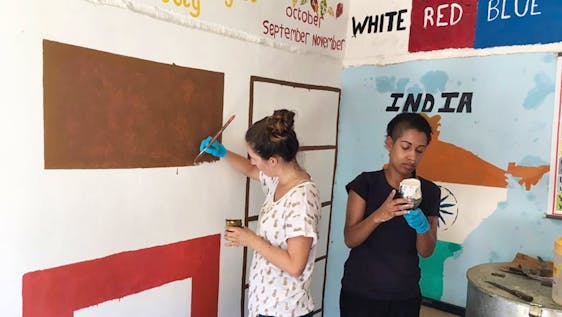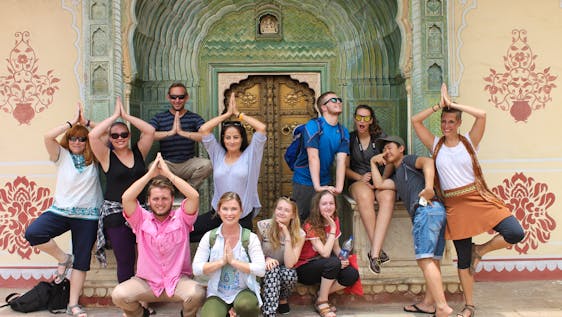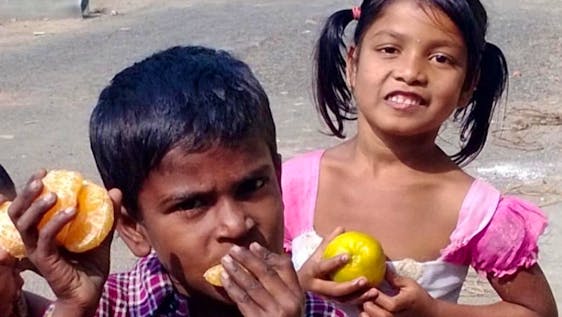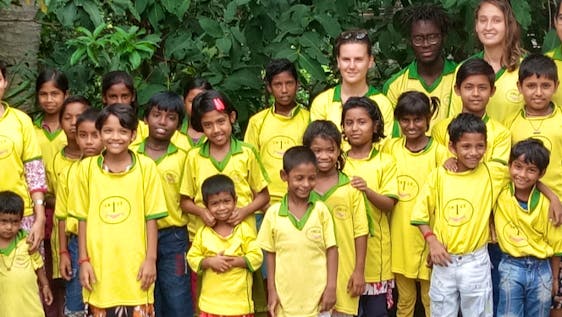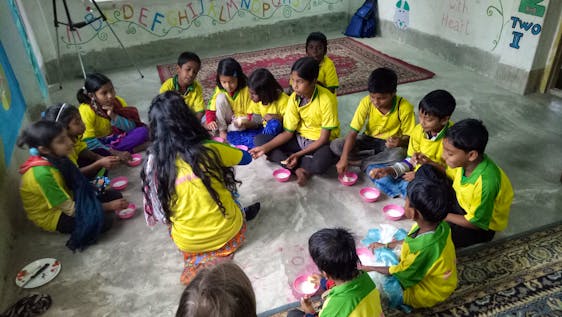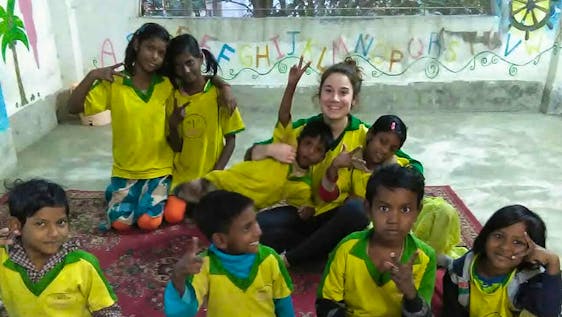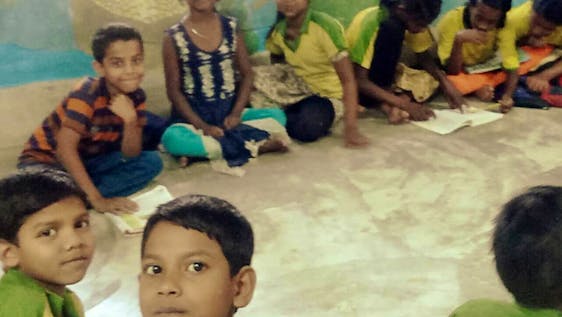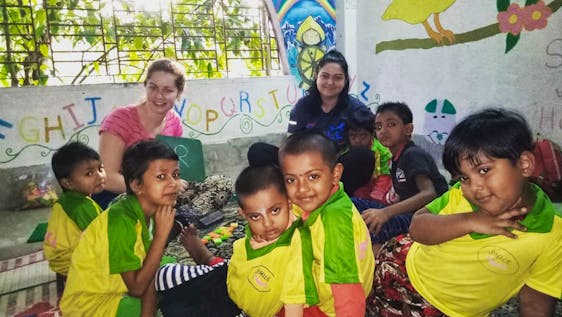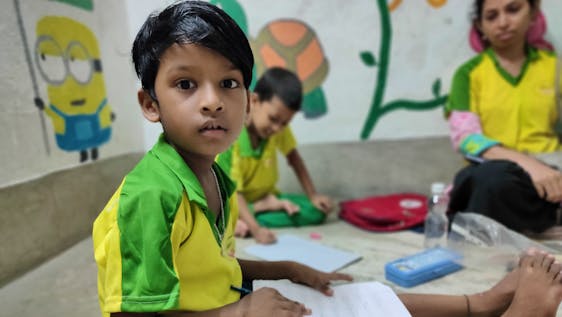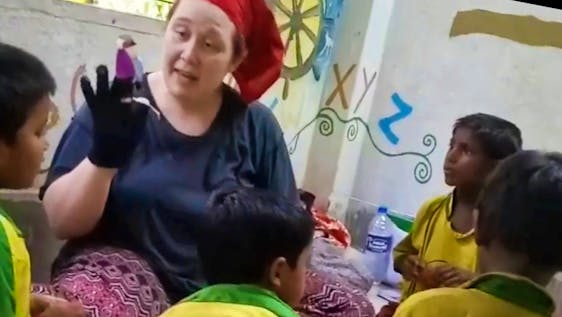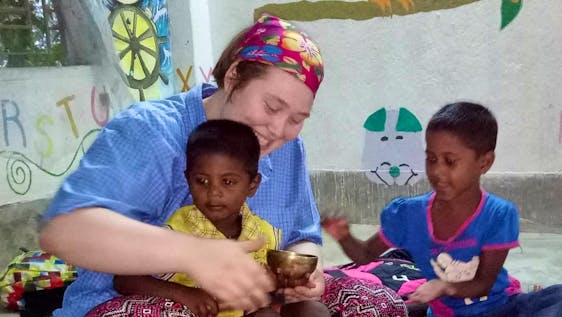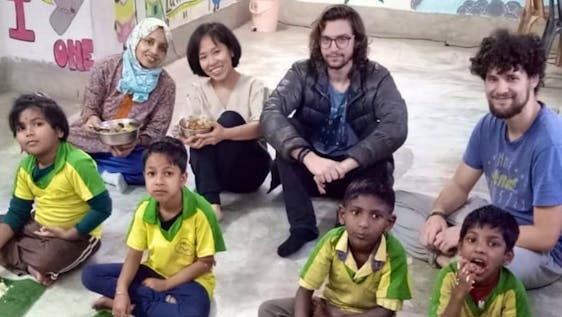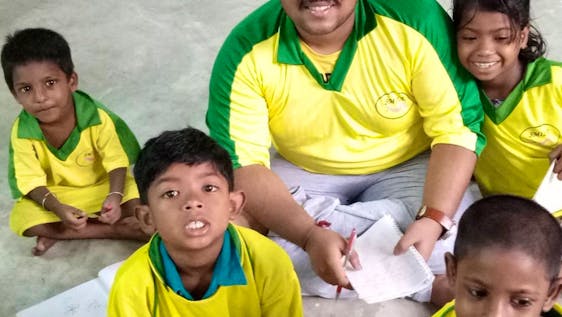Volunteering in India
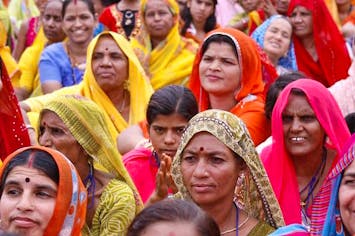
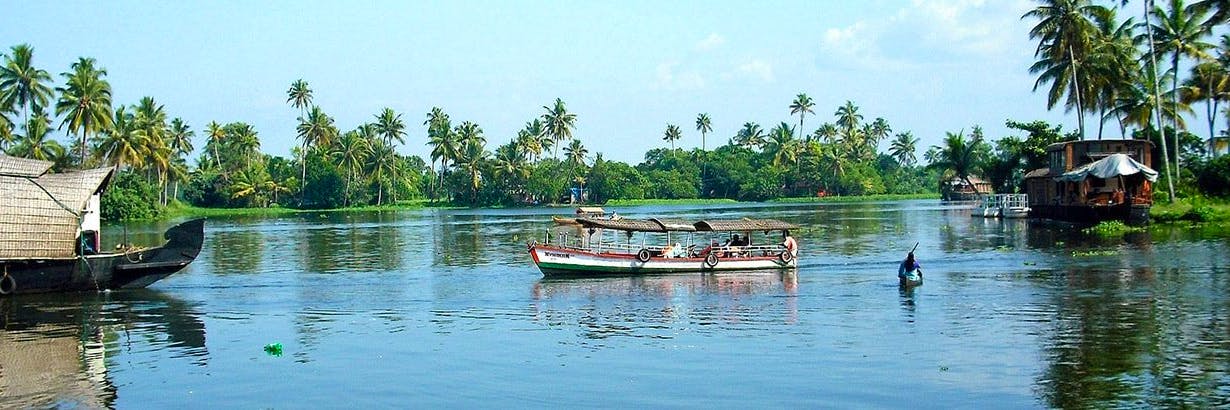
Volunteer Opportunities in India
Volunteering in India is an amazing experience. If you decide to travel and do voluntary work in India to support a local social project and their cause, you will be surprised by how much the country has to offer. It is home to a vast array of cultures, many different languages, and breathtaking landmarks that are unique to this corner of the earth.
Get to know India as the diverse and culturally rich country that it is, and experience everything India has to offer - from its traditions, and colourful festivals to spicy dishes and great music. Being a volunteer in India will be a great experience for you, and we want you to be prepared for your travel. That's why we are here to help you find out about the available volunteer projects in India. The opportunities are as varied as the country itself so there will be the right thing for everybody. Let's get started!
Volunteer opportunities in India
With over 1.2 billion people, India is the second-most populated country worldwide. However, a rapid economic growth did not solve the challenges, that a majority of India's huge population is facing, such as:
- poverty
- corruption
- malnutrition
- inadequate public healthcare
- gender inequality
- unequal distribution of education
Many volunteer projects in India are located in and around the suburbs of Delhi, which is India's second largest metropolis by population. It is home to more than 14 million inhabitants and a major cultural, political, and commercial melting pot. Thus, Delhi's citizens are confronted with many of the issues mentioned before. You might also do voluntary work in Jaipur, which is located around 260 km (162 miles) from the Indian capital New Delhi. Other volunteer projects in India are located in more rural areas such as Himachal Pradesh which is one of the northern states in the Himalayas.
Volunteer opportunities in India are multiple and variable. Choosing a cause to support is probably the most exciting part of planning your travel as a volunteer in India. So what are the most common fields of volunteer work in India?
Animal and wildlife conservation
Did you know that India is the only present-day country where both lions and tigers are found in their natural habitat? However, the Bengal tiger is threatened by habitat loss, conflict with humans and illegal wildlife trade and is therefore considered to be one of the most endangered big cats in the world.
As a volunteer in India, you can get involved in tiger conservation efforts and help these endangered animals in their own incredibly picturesque natural habitat. In addition to walking and vehicle-based safaris, you will take part in all manner of tiger conservation activities, wildlife management, and community focused initiatives during your time as a volunteer in India at a wildlife conservation project.
The wealth and variety of the local wildlife population provide perfect volunteer opportunities in India. There you can get involved with all sorts of animal conservations. You can, for example, take care of wild animals that have been harmed or mistreated. Your contribution as a volunteer in India will help biologists perform monitoring and research of the local wildlife.
If you want to explore India's fauna even further, the national parks are a popular travel destination. However, the parks won't be the only place you are going to get close to wild animals. However, the parks won't be the only place you are going to get close to wild animals. Don't be surprised to see elephants walking around on the streets and monkeys trying to steal from you. Seriously, don't get too close to these monkeys!
Biodiversity and its conservation
India is one of 17 megadiverse countries, which means that it harbors at least 5000 species of endemic plants and is bordered by a marine ecosystem. Furthermore, India contains three biodiversity hotspots, one of them being the 21.2% of forests that cover the country's landmass. Unfortunately, the human encroachment of the past decades has endangered India's unique biodiversity critically. And even though the country has made great progress in the past in terms of environmental protection and awareness, there are still many environmental issues that India has to face.
Do you think that protecting the environment is one of the most important challenges of our time? Your motivation to do volunteer work in India can make a difference where it is really needed!
The 5 most important environmental challenges India is facing are:
- groundwater depletion
- land/soil degradation
- air and water pollution
- loss of biodiversity
- greenhouse gas emissions
Many of the social volunteer programs in India dealing with these issues are in desperate need of your helping hand and support as a volunteer in India. Other volunteer work in India that you can get involved in deals, for example, with organic and sustainable farming or environmental education.
Support community services
Given that widespread poverty and inequalities continue to be a great social concern in India, you might like to consider becoming a community volunteer in India. Among the many social issues the country has to face, these are the 5 most urgent:
- overpopulation
- corruption
- inefficient public health infrastructure
- the lack of proper sanitation in rural and urban areas
- the substantial increment of poverty rates and inequality
There are many social volunteer projects in India that aim to tackle these issues. Volunteering at one of them gives you the opportunity to make a great difference for local communities and to improve various aspects of the local people's lives. The volunteer work in India in the field of community development are:
- child care and buddy programs
- working at local orphanages
- taking care of street children
- construction programs
Women empowerment
India is a fundamentally male dominated society in which many women have limited access to education and employment. The predetermined gender roles that shape the lives of many women often push them towards domesticated and subordinate lifestyles. As a result only two-third of women in India are literate.
Rural women in India are among the most disadvantaged in terms of decision making power and access to development opportunities. But did you know that rural women are active agents of economic and social change? Studies show that they are leading in environmental protection and are, in many ways and to various degrees, thriving in their roles as farmers, producers, investors, caregivers as well as consumers.
This is why volunteer programs in India also include women empowerment since these are in need of international volunteers to assist, educate and provide professional training especially for women who live in:
- rural areas
- slums
- villages
- and below poverty line families
Education is the most influential tool to raise the status of women in developing countries. Once a woman perceives herself as belonging to a group - of students or workers (outside the family) she starts to see herself as a worthy and valuable contributor in society. This increases self-worth and paves the way for the eradication of gender inequalities. Hence, volunteer work in India has to involve the topic of women empowerment as well.
Working at an orphanage
Before you decide for one of the volunteer programs in India which is involved with orphanages, make sure you are prepared for your task and understand what to expect. While working with orphans might sound noble at first, it is important to realize that more than 80% of children living in orphanages are not orphans. They are separated from their families because they are poor, disabled, from an ethnic minority or because they are suffering from other exclusion factors.
Many of these children have experienced violence or abuse and are traumatised. For this reason, it is essential that volunteers MUST have appropriate skills. If not you could be putting yourself and the children at risk. Therefore, if you wish to do volunteer work in India at an orphanage, you should meet at least one of the following requirements:
- experience in working with traumatised children
- training as a child caretaker
- training as a psychologist
- training as a social worker
Teaching in India
Even though India can register a rising education, there is still a lot of potential and need for international volunteers to support local schools, especially in rural areas. Although there are many initiatives to work on the issue of poor education, it is still a concern in India. Projects focused on assisting with educational initiatives provide local children the opportunity for a better education. This is a great chance for children who couldn't afford to go to school otherwise.
Volunteering as a teacher and mentor for these kids is not only very rewarding, it will also help you grow as a person. To be working in teaching projects in India you need to be:
- open minded
- creative
- flexible
- prepared to face challenges
In some volunteer programs in India, you can find yourself teaching in an open-air classroom and the need for creativity and improvisation is paramount. As a volunteer in India in the field of education you will be working in a team and if you have the necessary skills you might get the chance to plan classes independently. If you decide to work as an English teacher you will help in improving the vocabulary as well as spoken English skills of the students. We recommend you to make use of your creativity to organize educational games to play with the children.
Medical and healthcare
The previously mentioned problems like poor sanitation and the lack of sanitary sources for drinkable water are some of the reasons that India fights against a lot of water borne diseases. There are also great inequalities in the health system, especially between the castes.
Being a volunteer in health care can be a great opportunity for you to really make a difference in the lives of the unfortunate and offer you some hands-on medical volunteer work in India. Coming from a medical background, your help is always well received. As a volunteer in India you can join many humanitarian projects in areas such as:
- Health education
- Hospital placements
- Dentistry
- Nursing
- Medical and healthcare internships
Volunteer opportunities in India are endless, so there will definitely a program that suits you.
Cost of living
The suggested daily budget for living as a volunteer in India is between US$ 12 and US$ 29. This is an estimate made considering the average price of some of the services you might need and things you might want to buy. It gives you a general overview about how much things cost in this country, so you can be prepared and save the money you will need.
Additional costs you should consider will be:
- program fees
- flight tickets (find cheap flights to India)
- travel insurance (find your travel insurance)
- fees for your visa
- personal expenses
An exemplary overview of living costs in India (in US$, for one person) is:
Things to know before volunteering in India
When you travel to a different country it's important to familiarise yourself with its unique culture and social characteristics. This helps you to settle in quickly and avoid misunderstandings. The local Indian culture is diverse and old. It is affected by foreign influences, the different religions in the country and by the various languages and tribes. Exploring India's cultural heritage is a must when you travel India and a great way to spend your free time as a volunteer in India.
Safety & precautions
Keep in mind that there are different laws in every region you need to know before going to India. India has a complex social structure. You need to be aware of this and make the necessary research beforehand. When in doubt, you can follow these simple tips:
- You must be able to identify yourself at all times!
- Carry your personal belongings, and documents with you at all times.
- Bring attested photocopies, just in case.
Check the legal drinking age of the state you are volunteering in: The legal ages range from 18 to 25 depending on the state. In some states (the so-called “dry states“) alcohol is completely forbidden.
Since the biggest cities in India often have a population of many million people, and thus a great poverty issue, high criminality rates are to be expected. If you are traveling alone as a woman, please check out some of our tips on female solo travel in India.
Culture & religion
Indian cuisine is - not surprisingly - as diverse as the country's different regions. Did you know that India has the largest number of vegetarians in the world? Around 20-40% of Indians are vegetarians. Indian cuisine is known for its rich use of herbs and spices and different cooking techniques.
The majority of the people in India (80%) practices Hinduism, but there's also a reasonable community that believes in Islam (14%). It is important to respect all religious habits and places:
- Cover your head before entering a religious place.
- Ask for permission before taking pictures of women and religious places.
- Sometimes it is prohibited to take pictures and sometimes the places charge for it.
When moving to a different country it's important to familiarize yourself with its unique culture and the social characteristics. This helps you to settle in quickly and avoid misunderstandings. Regarding the Indian culture, please keep in mind that:
- It is not appreciated to show affection publicly.
- The same applies to nudity, which is highly penalized. So, if you are visiting any beaches, please abstain from going topless. You might be harshly reprimanded for this!
- It is prohibited to smoke in public places.
- It is impolite to eat with the left hand.
Health advice
It is annoying to get sick when traveling and although it is a common concern for travelers to get a stomach illness when traveling to India, there are some basic precautions you can take to avoid it:
- Eat and drink safely: Don't eat undercooked food, avoid eating street food and don't drink water from the tap!
- Also, wash your hands often, especially before eating.
- Plan for how you will get health care during your stay. Get a travel insurance and bring medicine with you, especially if you need special medication.
- Prevent bug bites: You might want to cover exposed skin, use an insect repellent, and use a bed net.
- Make sure you are up-to-date on routine vaccinations before every trip. These vaccines include MMR, diphtheria-tetanus-pertussis, varicella (chickenpox), polio, and your yearly flu shot. Moreover, the US based health protection agency CDC recommends hepatitis A and typhoid vaccinations as you can get theses disease through contaminated food or water in India.
Tips for female travelers
As a female volunteer that travels outside the rural areas of India, keep in mind that safety of women is a concern in India. Exercise common sense and take the necessary measures to avoid unpleasant occurrences!
- You should wear clothes that cover your shoulders and knees. This is even more important when you're visiting places of worship like temples.
- It is recommended to carry a light scarf with you always. You can use it to cover your head when it gets really hot or when visiting religious places.
- Use pre-paid taxis or taxis booked from hotels rather than hailing them on the street.
Who can volunteer in India?
You might have noticed by now that there are many volunteer opportunities in India that require different skills and abilities from their international volunteers. While you can find out the specific requirements for each project on their profiles on Volunteer World, here are some general requirements that apply to most projects in India:
- You need to be at least 18 years old for most of the volunteer projects. When in doubt, we advise you to get in contact with the local project manager, as in some projects you can also volunteer when you're 16 years old.
- You should have an intermediate level of English knowledge; some projects also require an advanced English knowledge.
- Depending on the project you're interested in, you might need to provide a criminal background check and a health declaration before volunteering.
- To have strong interpersonal skills, and experiences in working with a wide variety of people is expected from all volunteers. For teaching projects, other skills like dancing, drawing, sports, etc. can favour you as well.
What visa do I need for volunteering in India?
You have made it to the last section of this guide, which is another really important aspect while planning your trip: getting your volunteer visa for India.
Please consider that the following information is based on a best practice approach, which has been made according to the best of our knowledge and in cooperation with several volunteer organizations. That's why you should please make sure to discuss your visa requirements with your project coordinator on Volunteer World. If in doubt, we also recommend getting in touch with the Indian embassy or consulate in your country.
General entry information
There are some general requirements you should comply upon your arrival:
- Please check the current validity of your passport. Your passport should have at least 180 days validity from the date of arrival in India.
- Make sure your passport has at least two blank Visa pages. India requires that you have adequate unused pages in your passport, allowing for any necessary stamps upon arrival and departure.
- Please check if a transit visa is required for any connections.
- Make sure to be in possession of a valid return ticket.
Best practice for short-term volunteers
If you are planning to volunteer in India for 60 days or less, you can get the e-Visa. This visa is valid for 60 days from the date of arrival and permits double entry but is not extendable.
The e-Visa requires a complete online application . The application must be made at least four calendar days in advance of the date of arrival and can be made as early as 120 days in advance.
The e-Visa fees for India are divided into four slabs (in US$) depending on your nationality:
- free (e.g. citizens from Argentina or South Africa)
- US$ 25 (Japan, Singapore and Sri Lanka)
- US$ 80 (Canada/Australia/Switzerland/EU)
- US$ 100 (US/UK/Russian citizens)
Best practice for long-term volunteers
If you are planning to volunteer in India for more than 60 days, you should either apply for an employment or a tourist visa. This depends on your program duration and further plans to continue your travel through India.
- The Tourist Visa is valid for a period of six months and is not extendable. All applicants are required to fill the valid online visa application form through the authorized website. Once you have completed your online application you will be provided with a checklist of documents that need to be submitted.
- The Employment Visa is usually granted for one year or the duration of your voluntary work. Extensions and renewals can be requested at the Indian Ministry of Home Affairs in India (keep in mind that you need another blank page for each extension). Please note that you need an invitation letter from the Indian organization you are volunteering with in order to apply for the Employment Visa.
 Intern Abroad
Intern Abroad
 Hotspots
Hotspots
 Delhi
Delhi
 Healthcare
Healthcare
 Medical Training
Medical Training
 Nursing Internship
Nursing Internship
 Physical Therapy Internship
Physical Therapy Internship
 Midwifery Internship
Midwifery Internship
 Pediatrics Volunteer
Pediatrics Volunteer
 Dental Internship
Dental Internship
 Community
Community
 Childcare
Childcare
 Activities
Activities
 Families with small kids
Families with small kids
 Kolkata
Kolkata
 Yoga
Yoga
 Jaipur
Jaipur
 Refugees
Refugees
 Culture and Arts
Culture and Arts
 Women Empowerment
Women Empowerment
 Volunteer and Travel
Volunteer and Travel
 Voluntourism
Voluntourism
 Construction
Construction
 Vegan
Vegan
 Social Work
Social Work
 Theater
Theater
 Music
Music
 Himalaya
Himalaya
 Street Animals
Street Animals
 Animal
Animal
 Building Schools
Building Schools
 Everest Trekking
Everest Trekking
 Horse
Horse
 Indian Elephant
Indian Elephant
 Indian Leopard
Indian Leopard
 Leopard Conservation
Leopard Conservation
 Tiger Conservation
Tiger Conservation
 Bear Conservation
Bear Conservation
 Sloth Bear
Sloth Bear
 Elephant Conservation
Elephant Conservation
 Education
Education
 English Teaching
English Teaching
 NGO Support
NGO Support
 Marketing and IT
Marketing and IT
 Animal Shelter
Animal Shelter
 Environment
Environment
 Agriculture
Agriculture
 Dog
Dog
 Cats
Cats
 Primary School
Primary School
 NGO Management
NGO Management
 Soccer
Soccer
 Volleyball
Volleyball
 Sports
Sports
 Energy and Water
Energy and Water
 Special Needs
Special Needs
 Orphanage
Orphanage
 Hiking
Hiking
 Indigenous cultures
Indigenous cultures
 Ecological Farming
Ecological Farming
